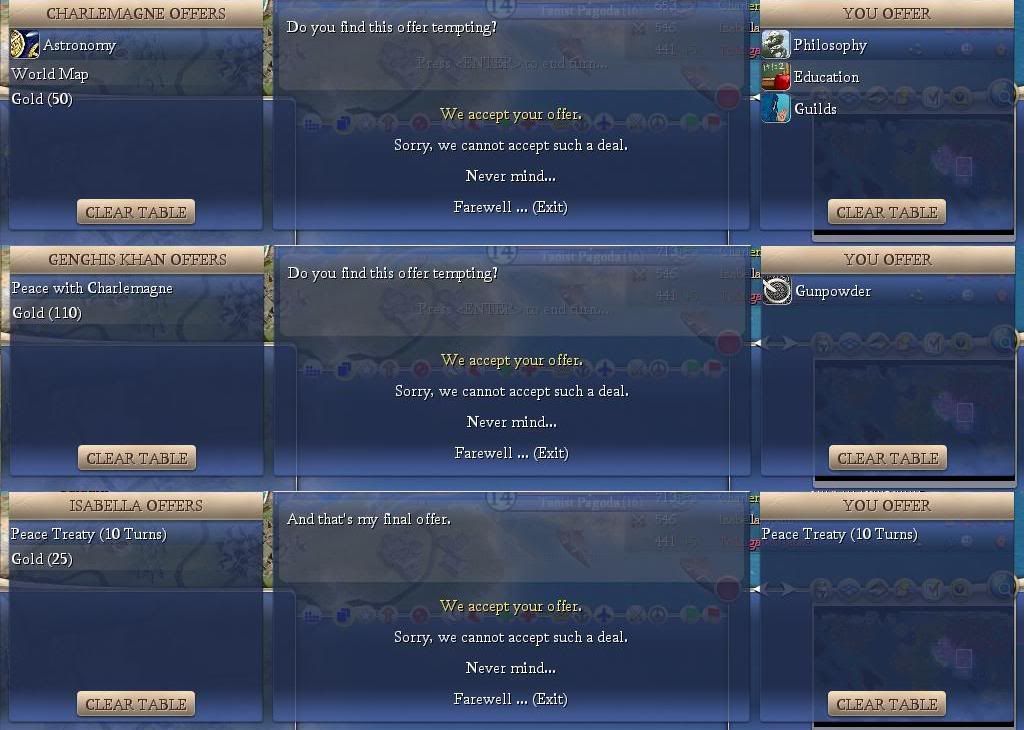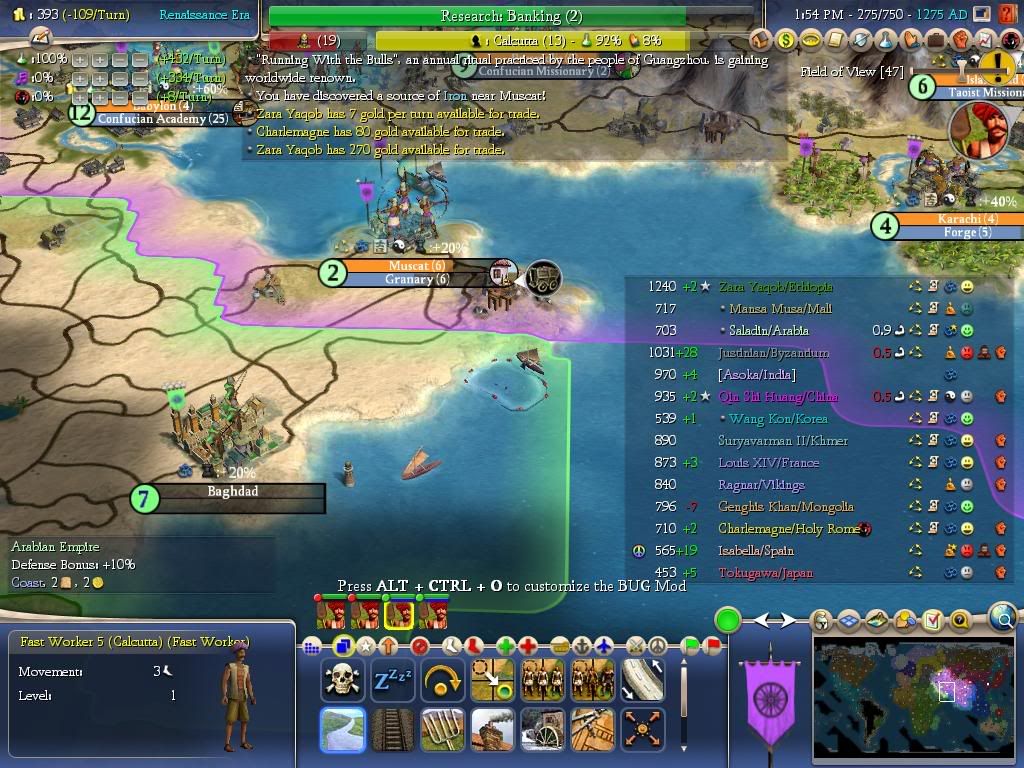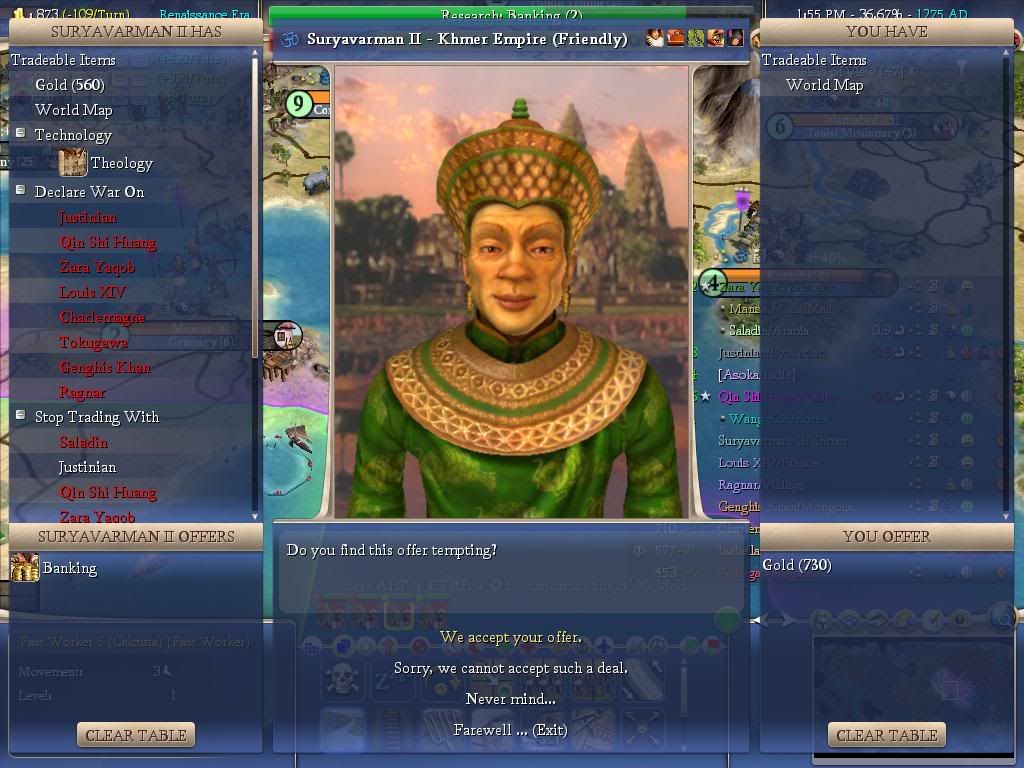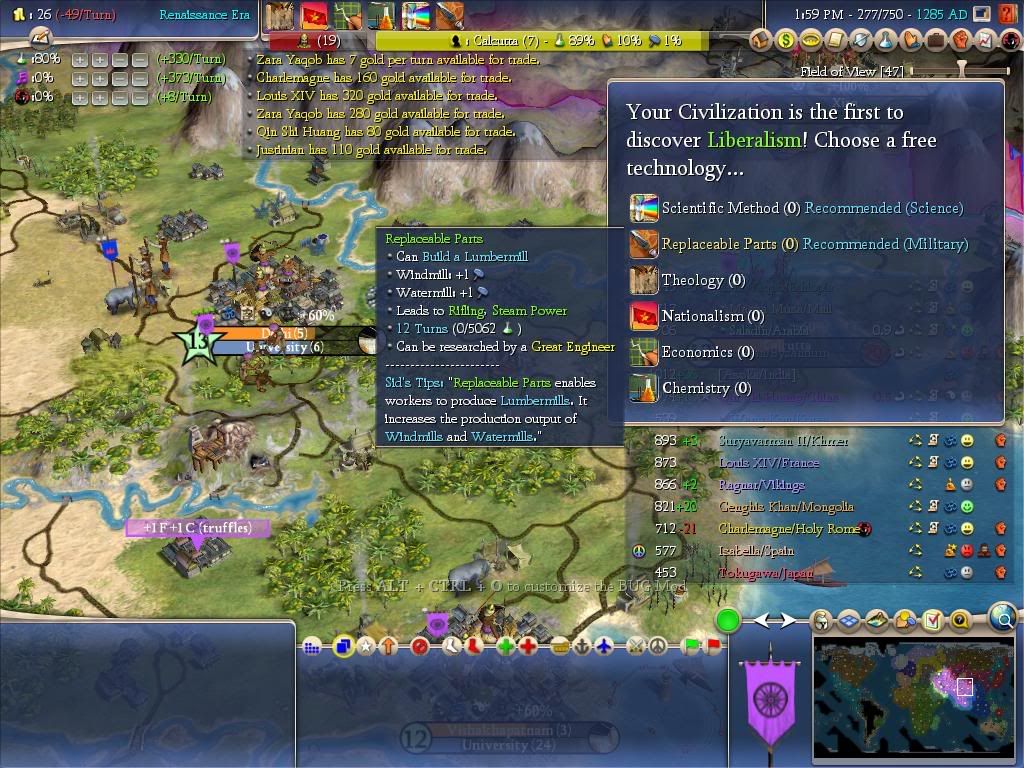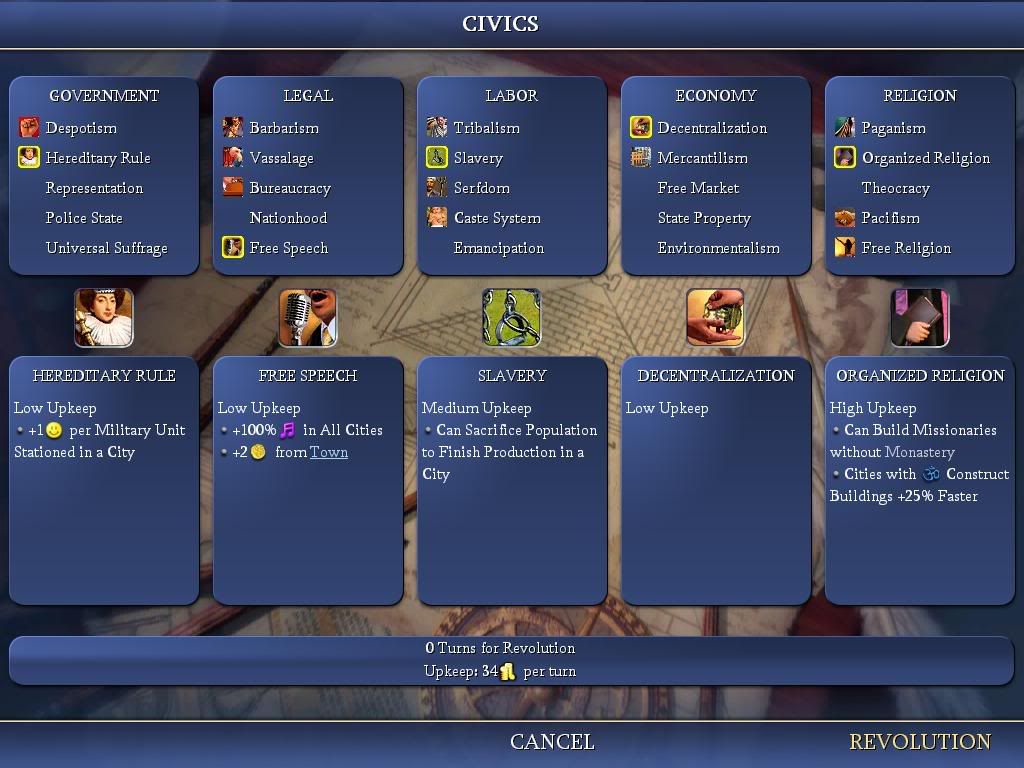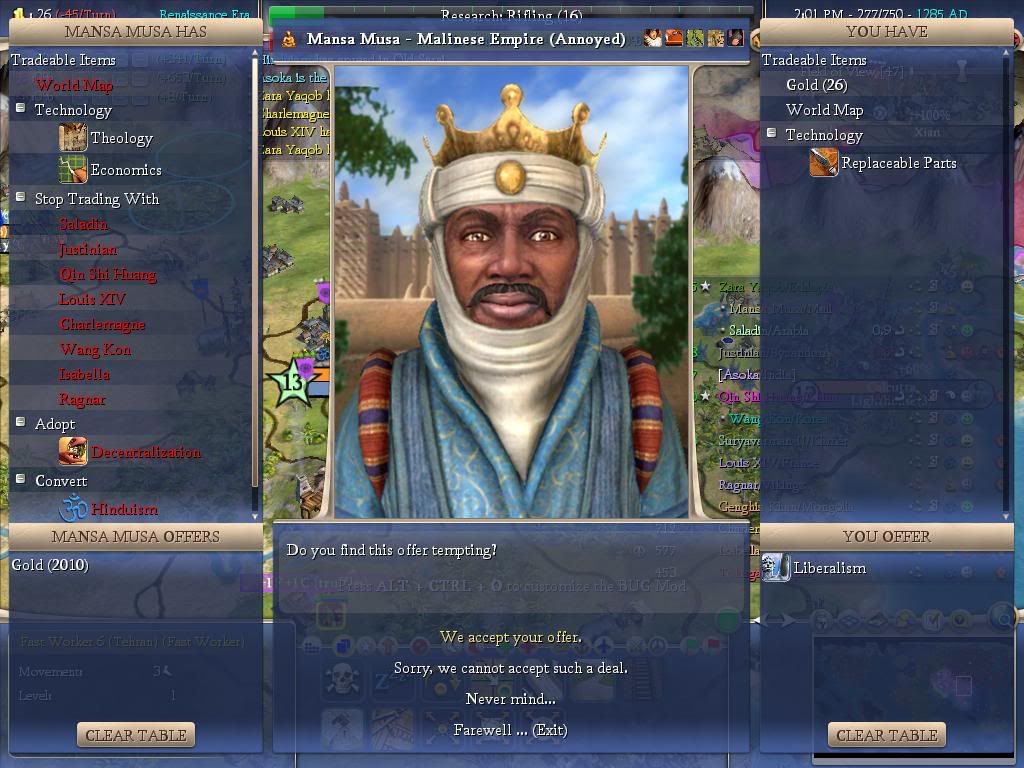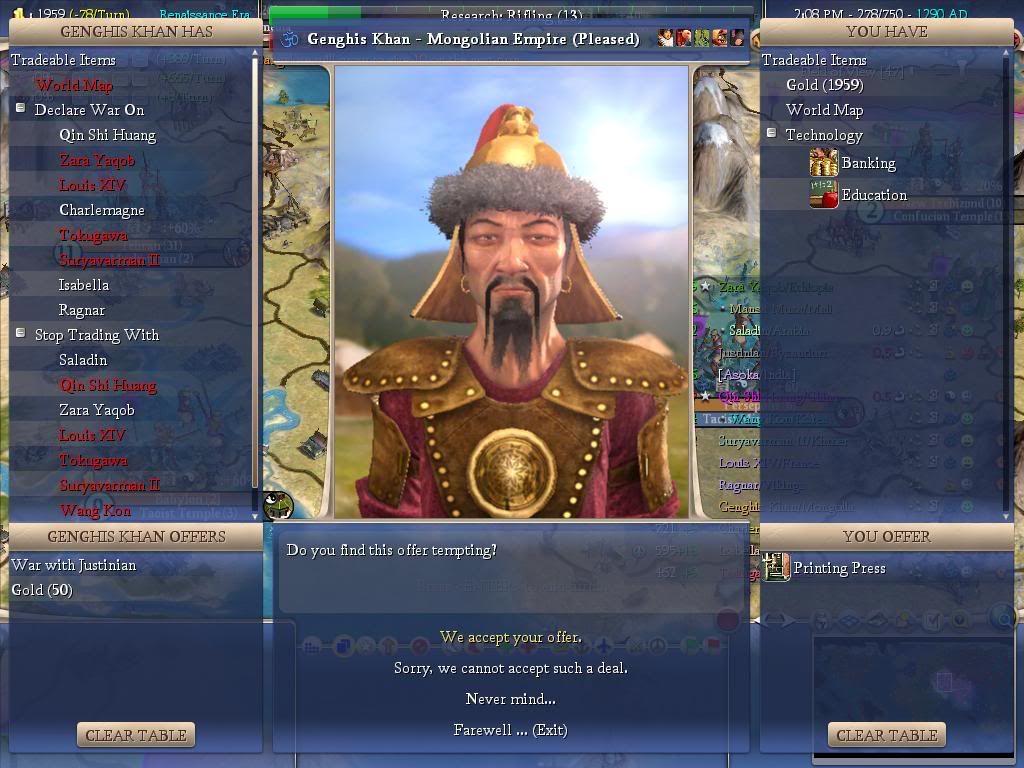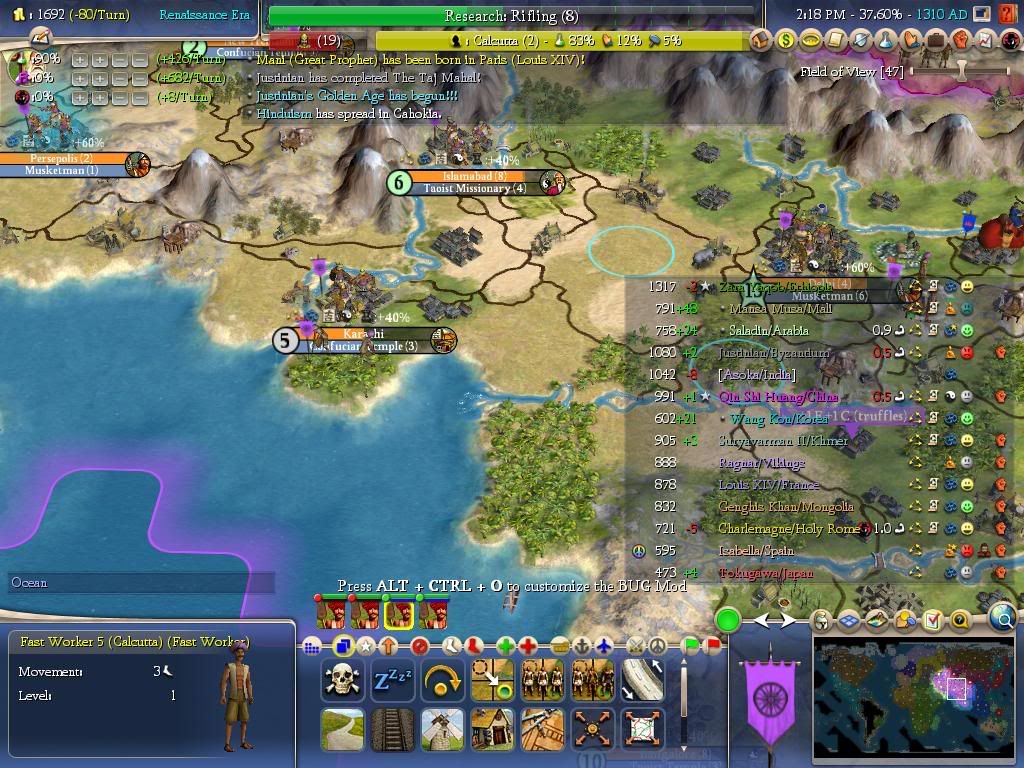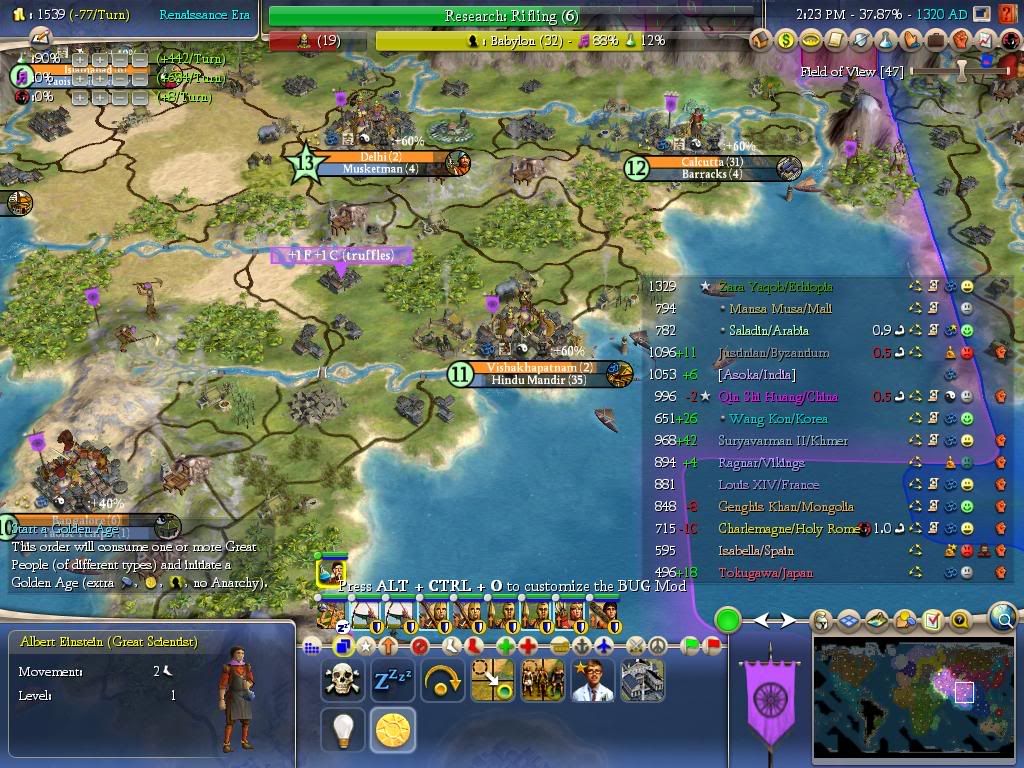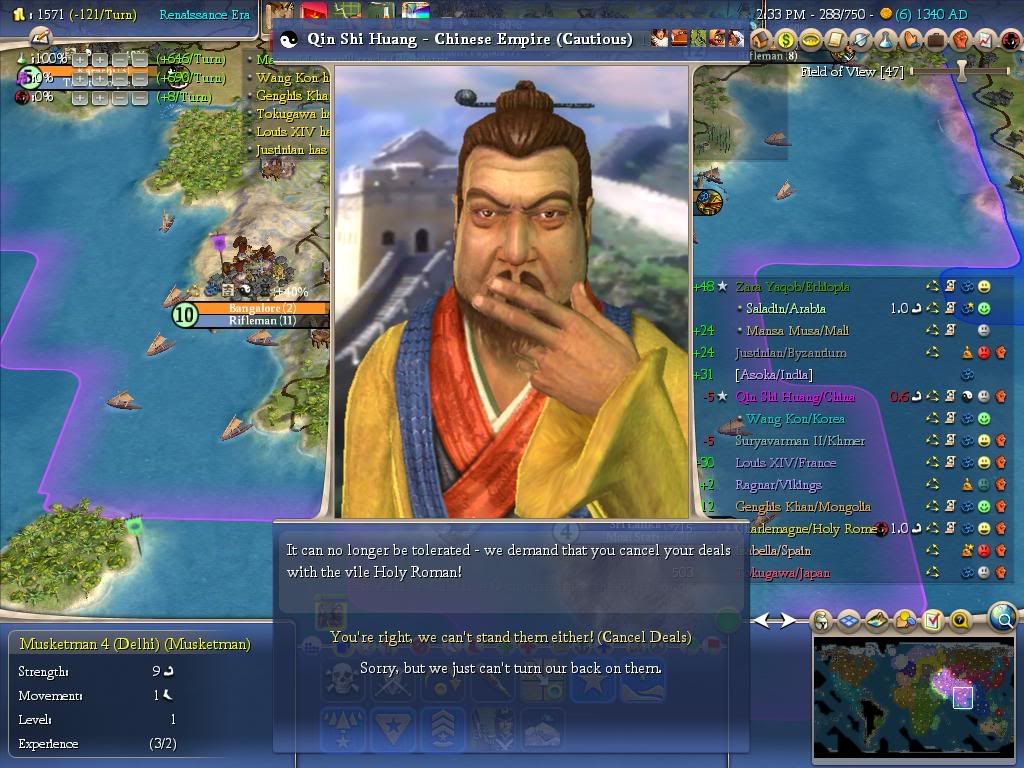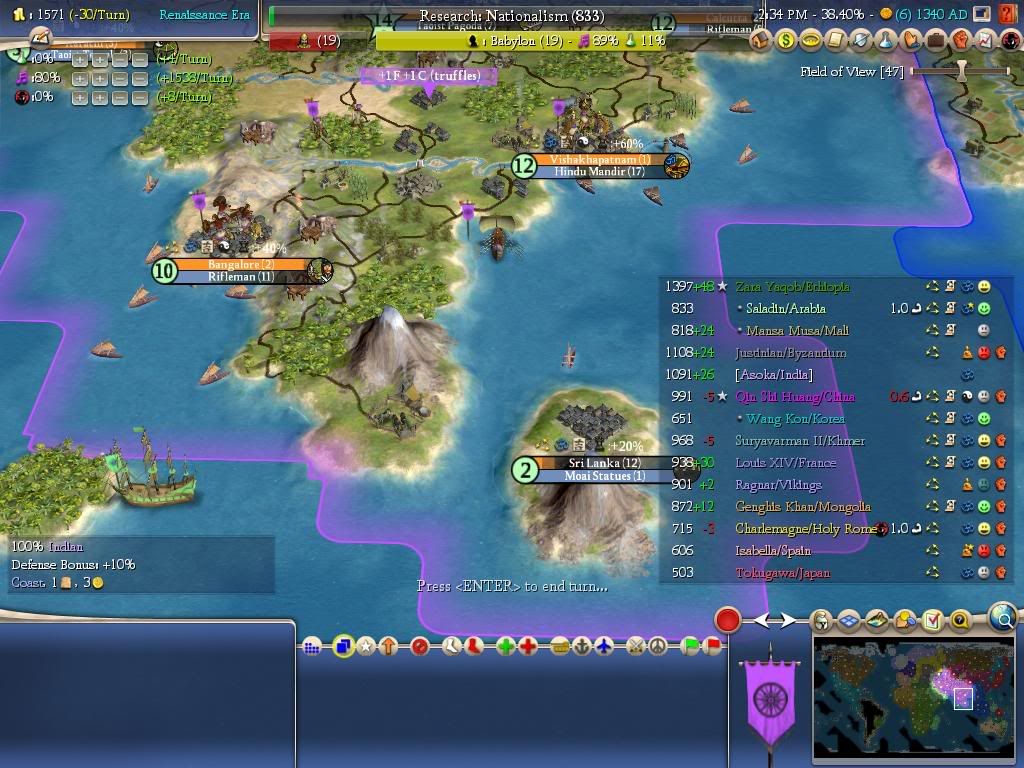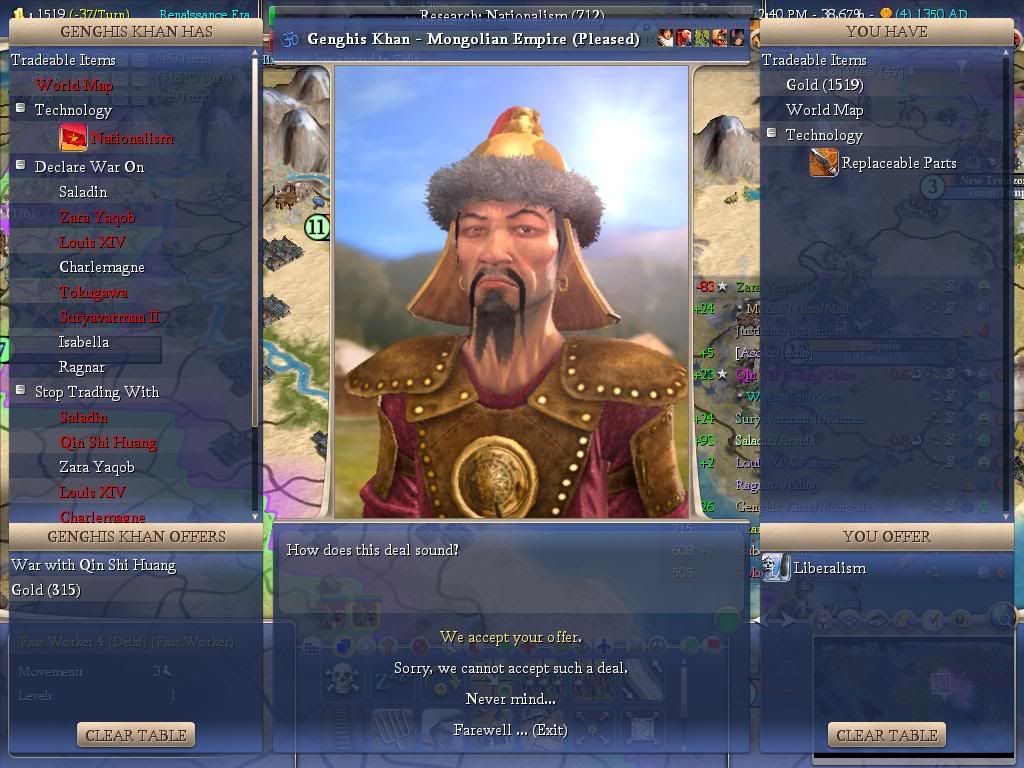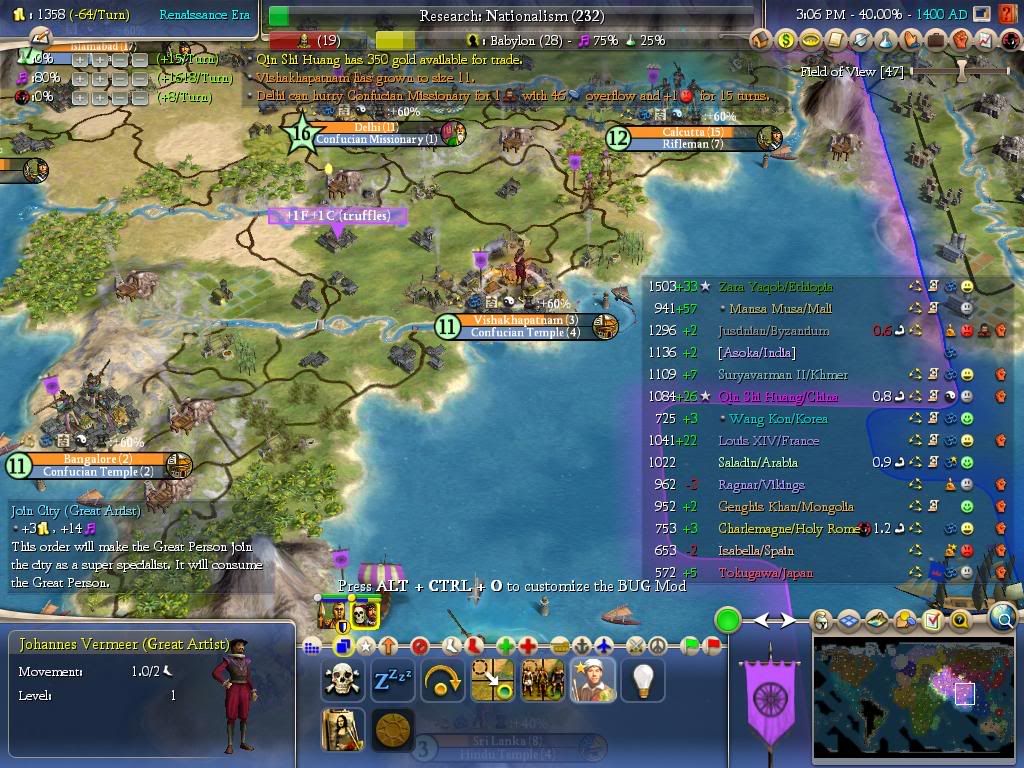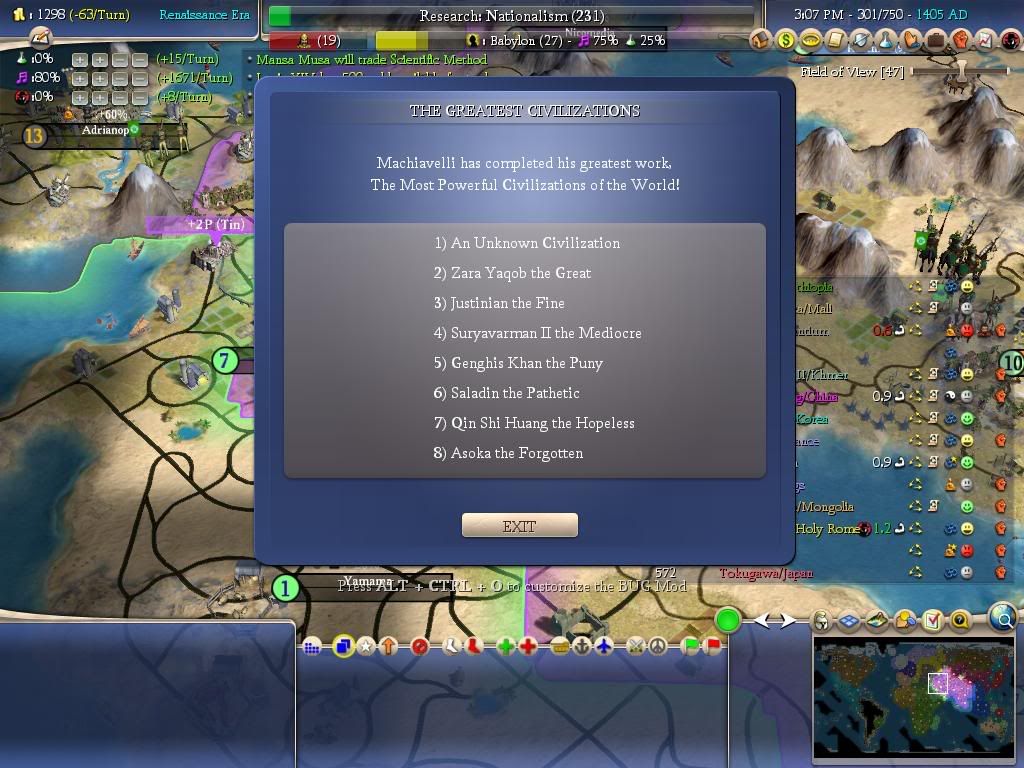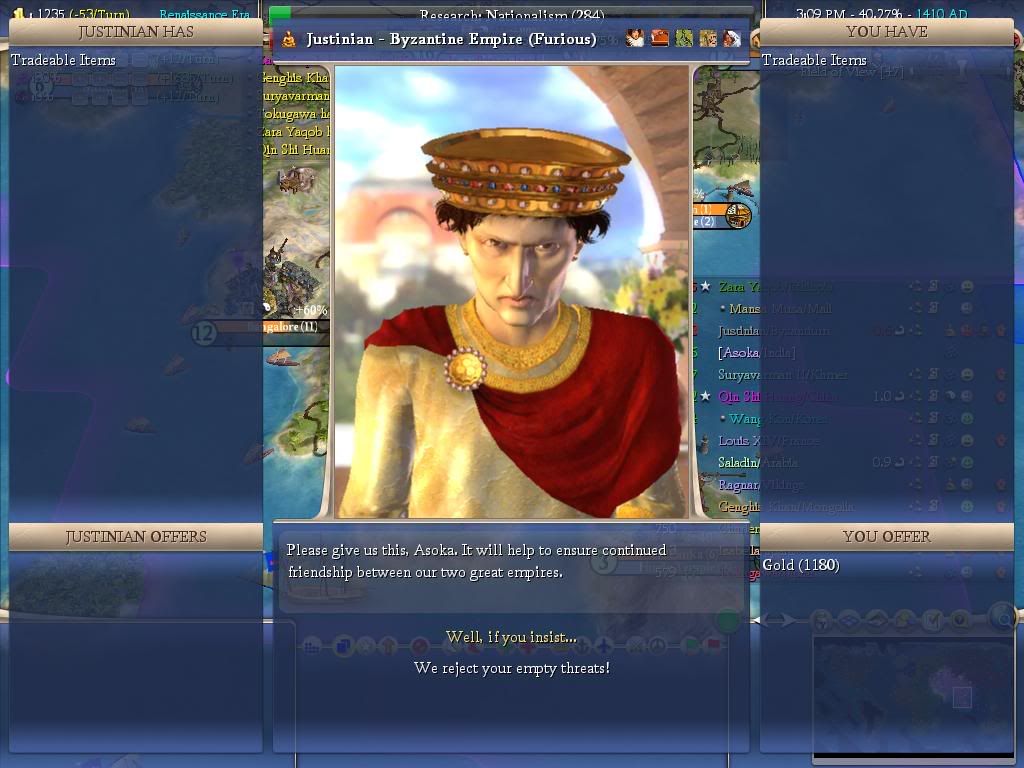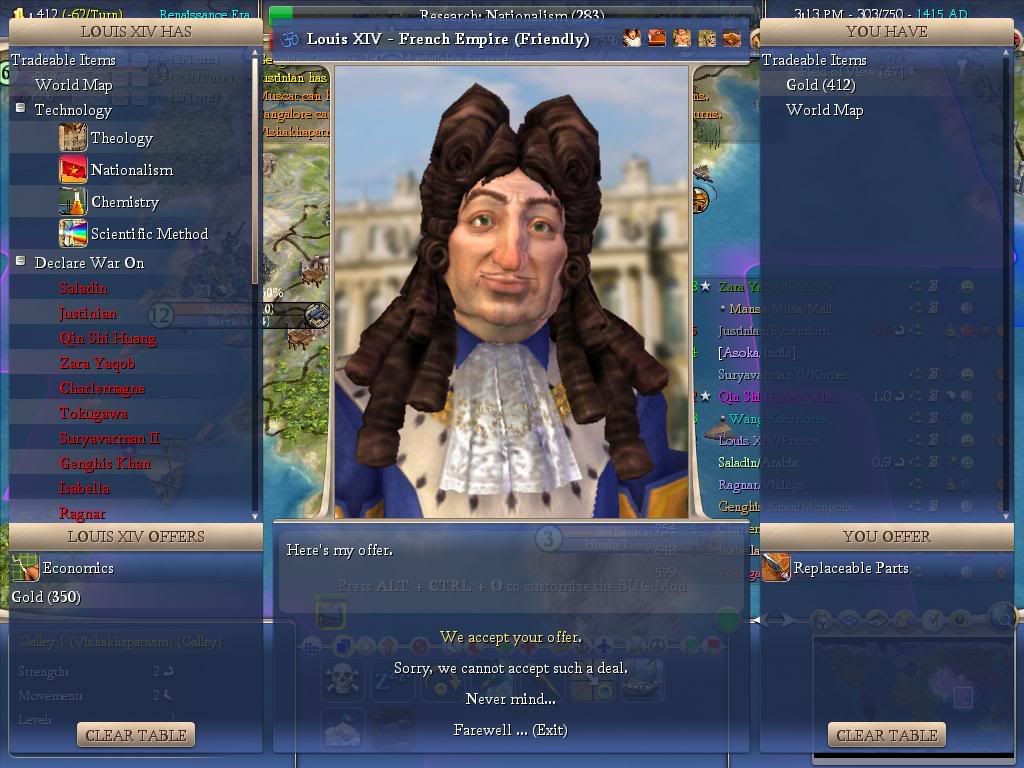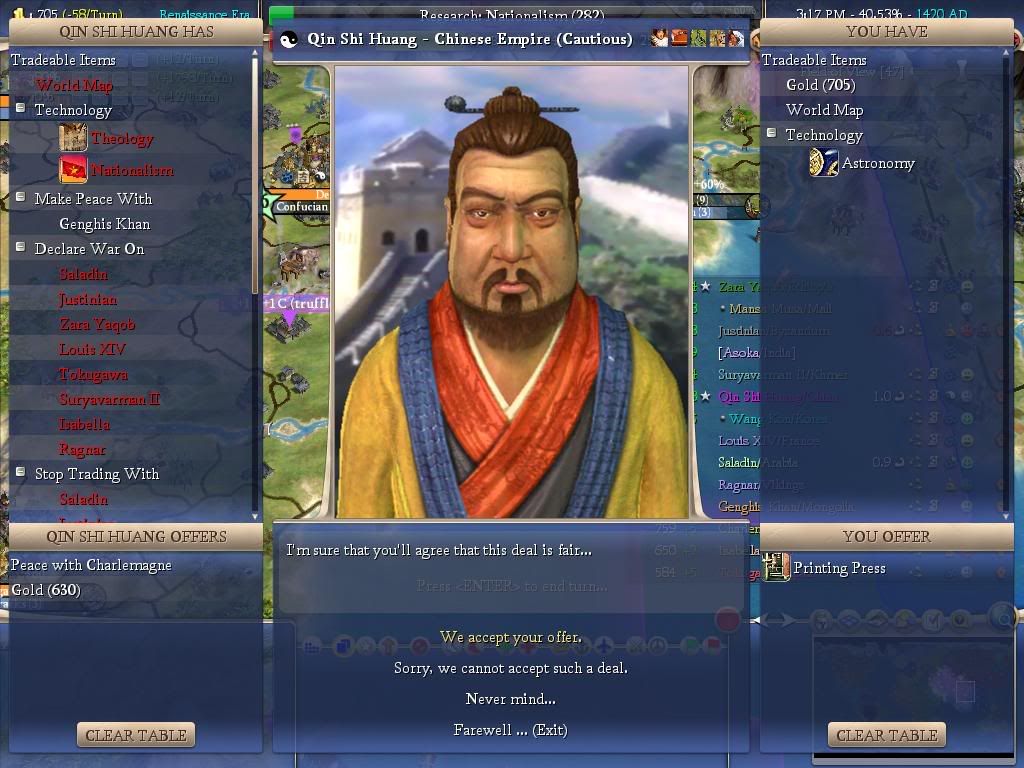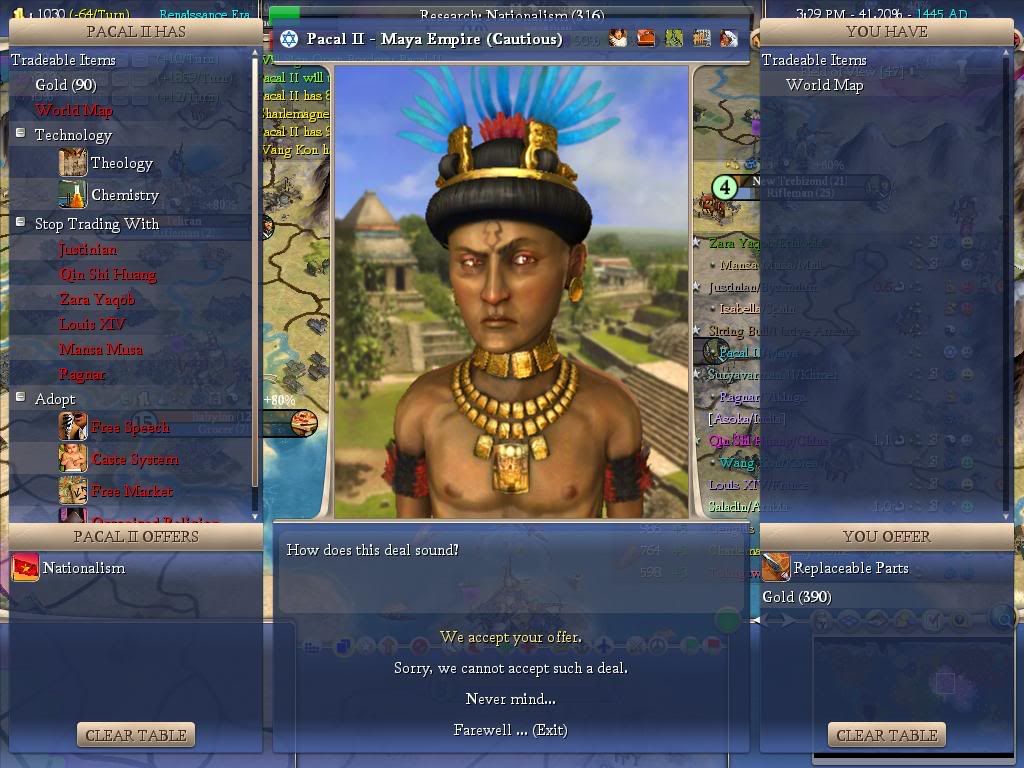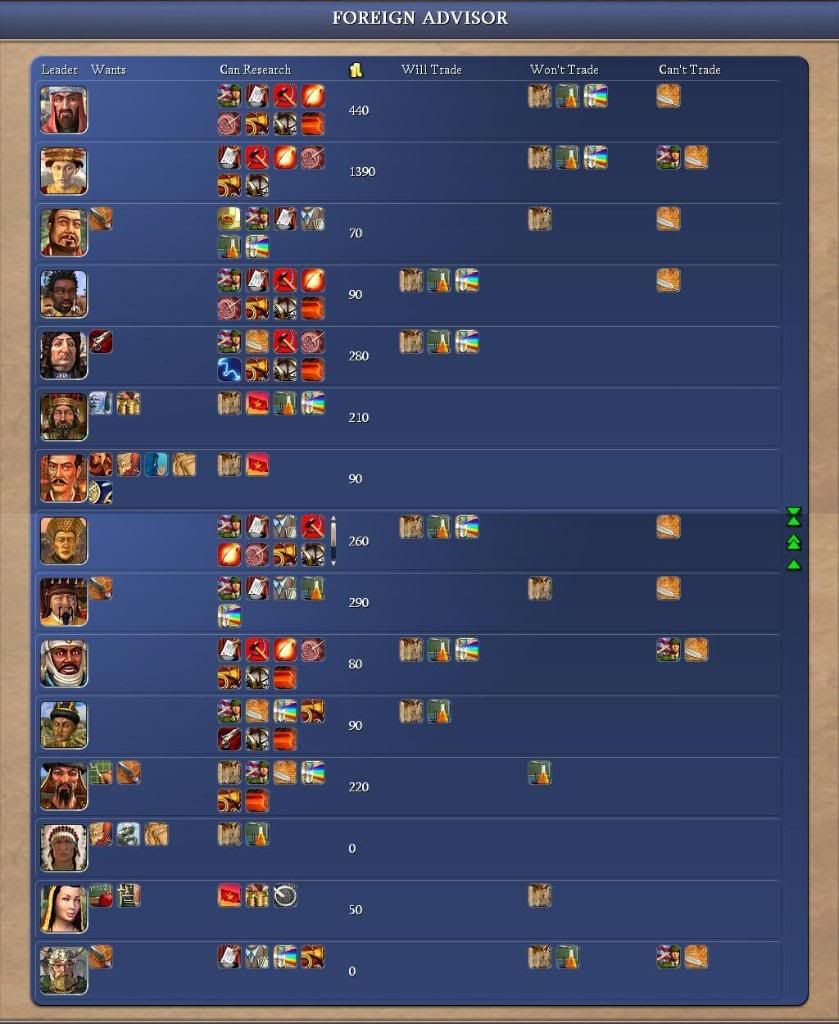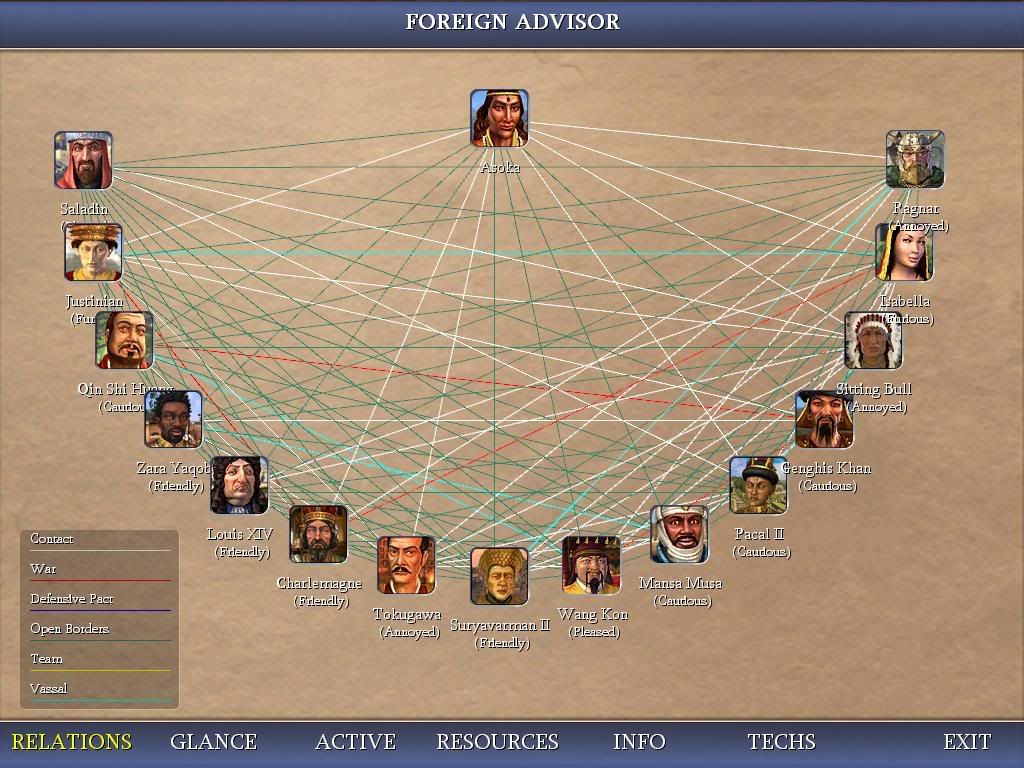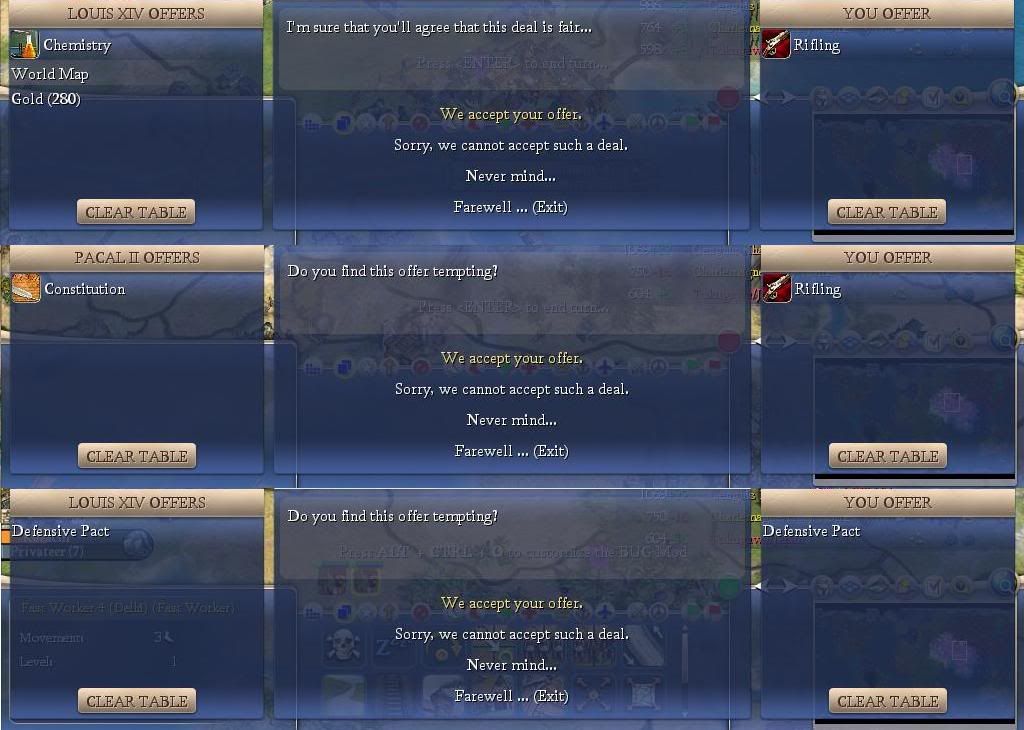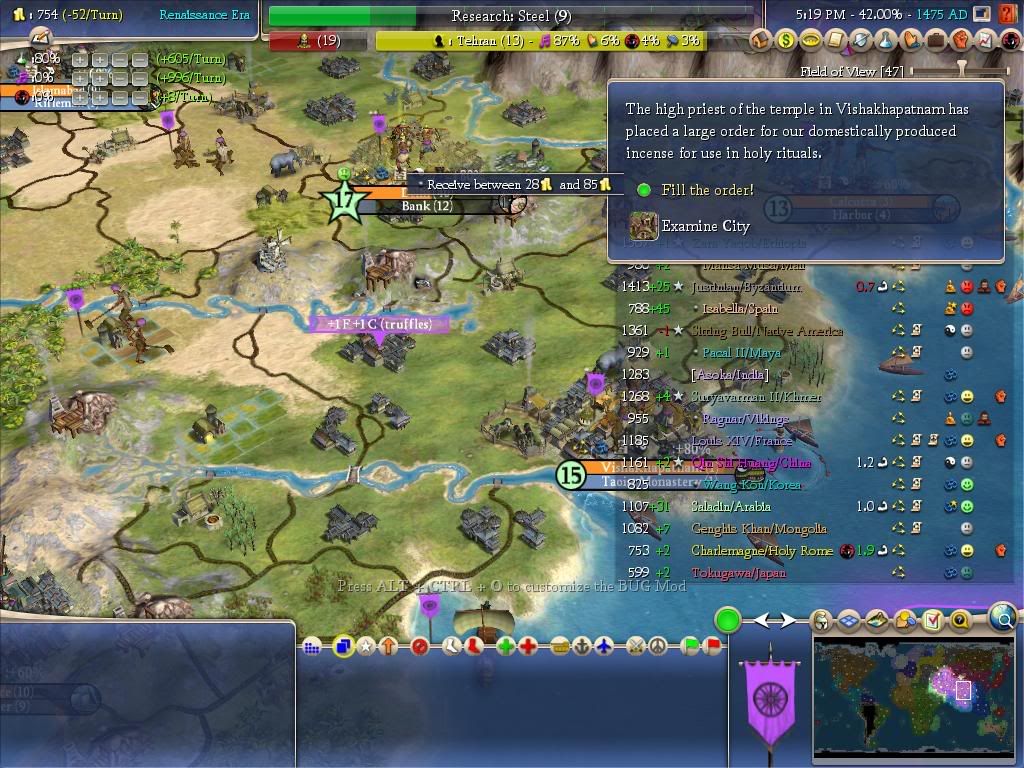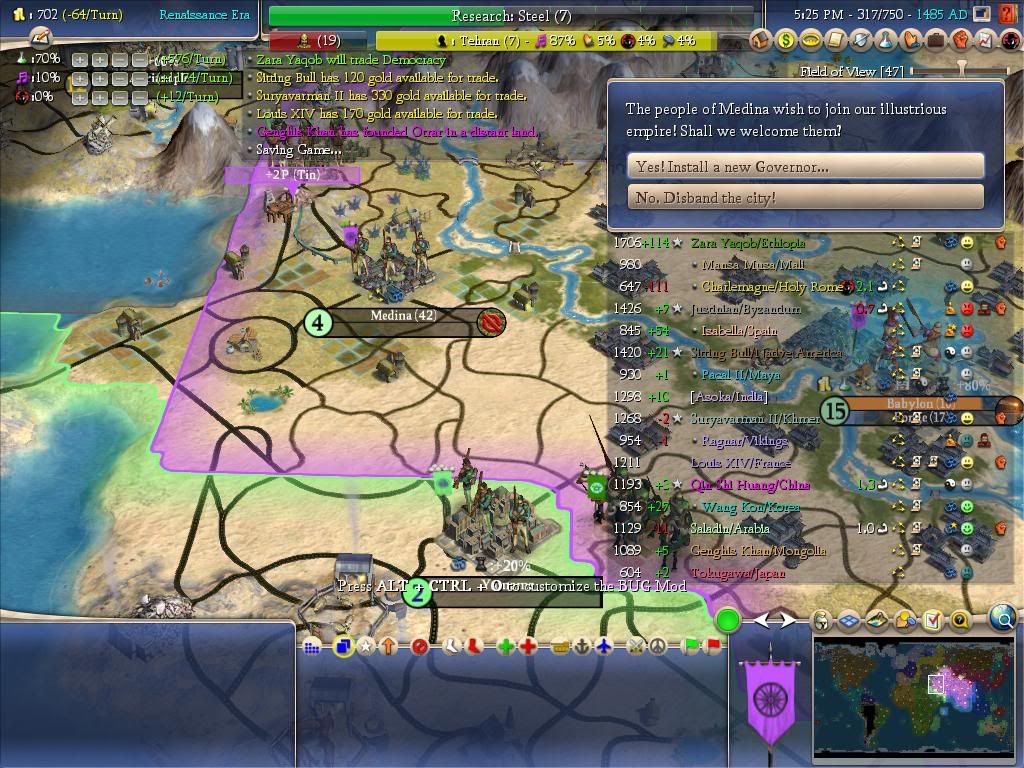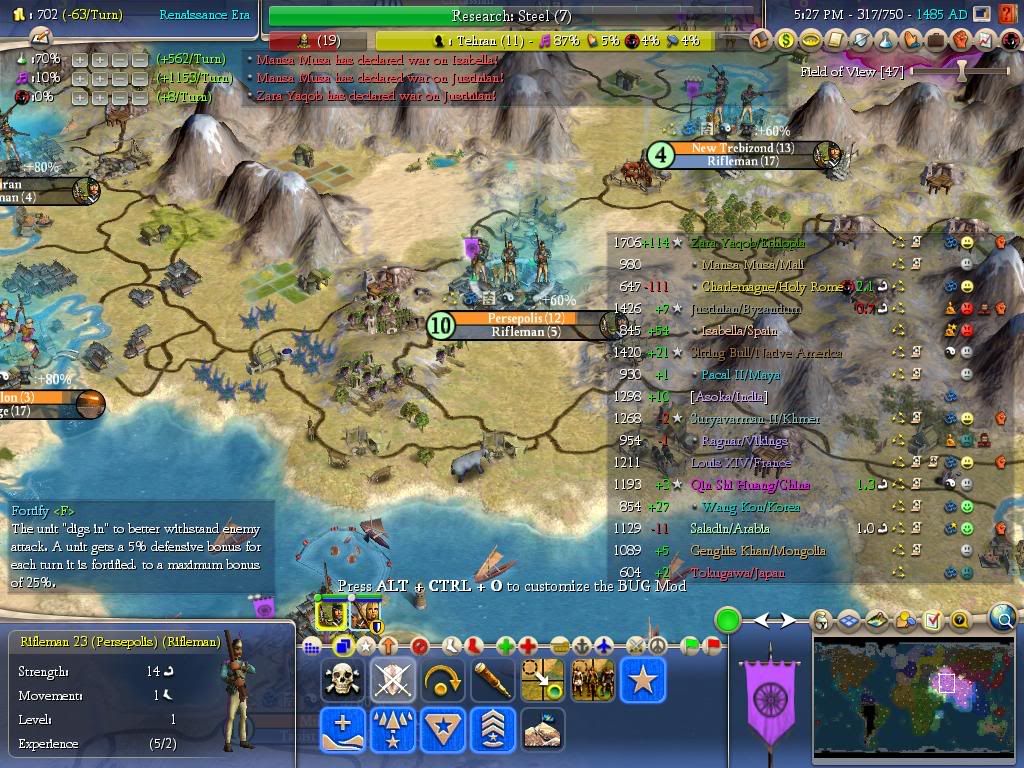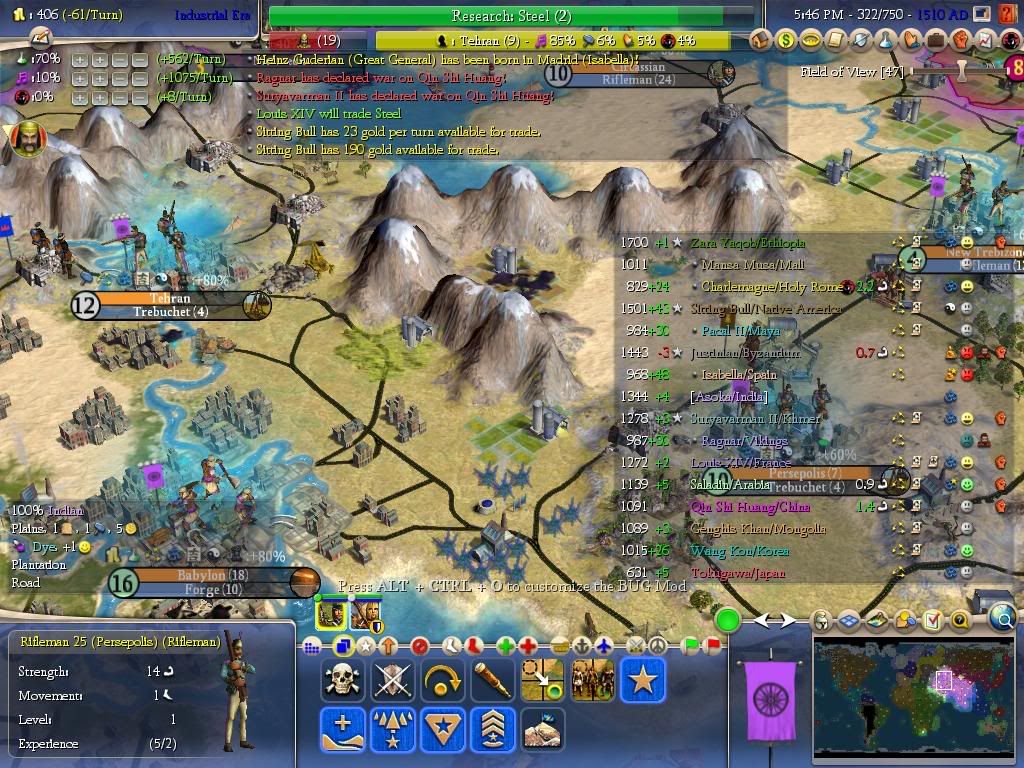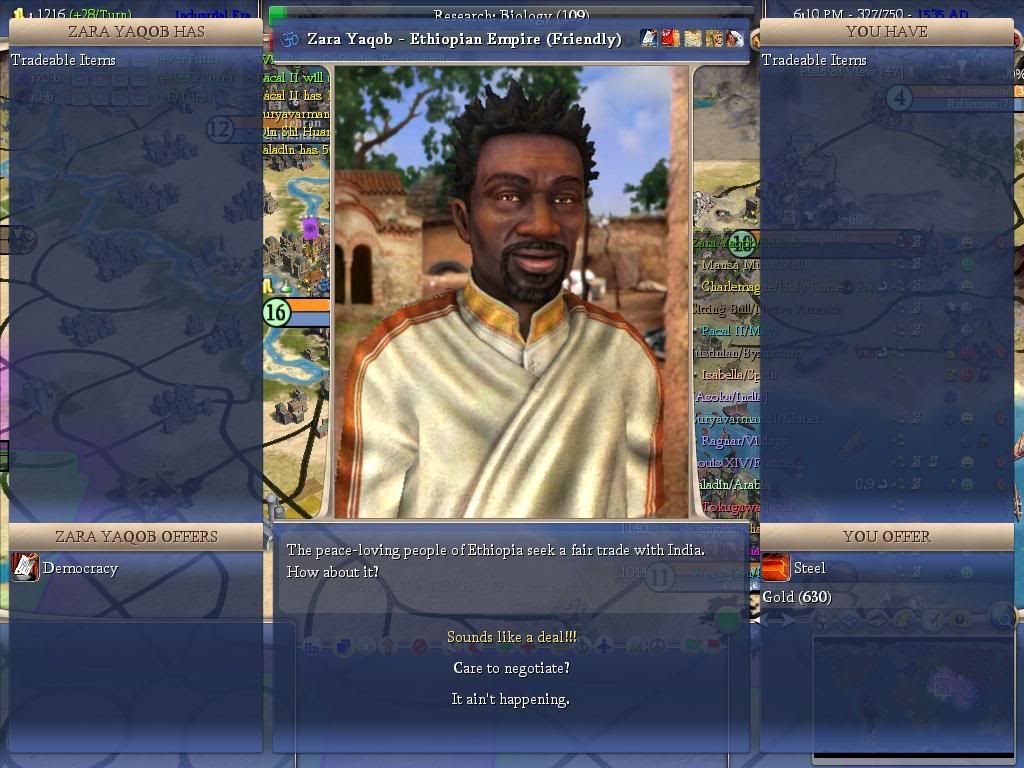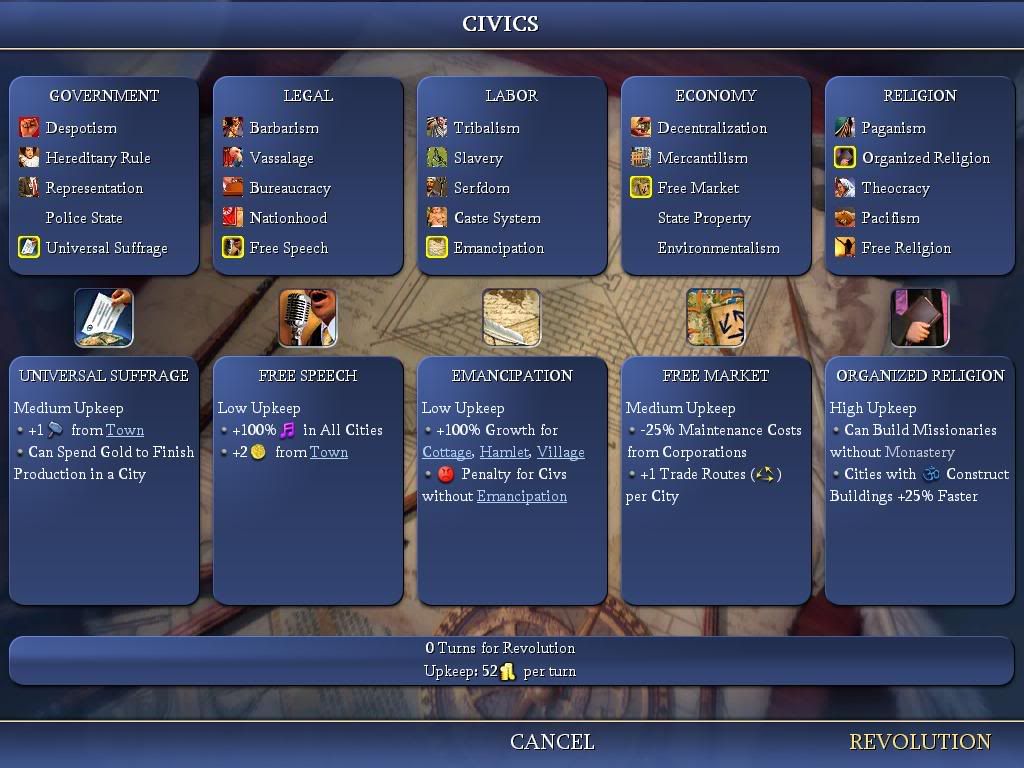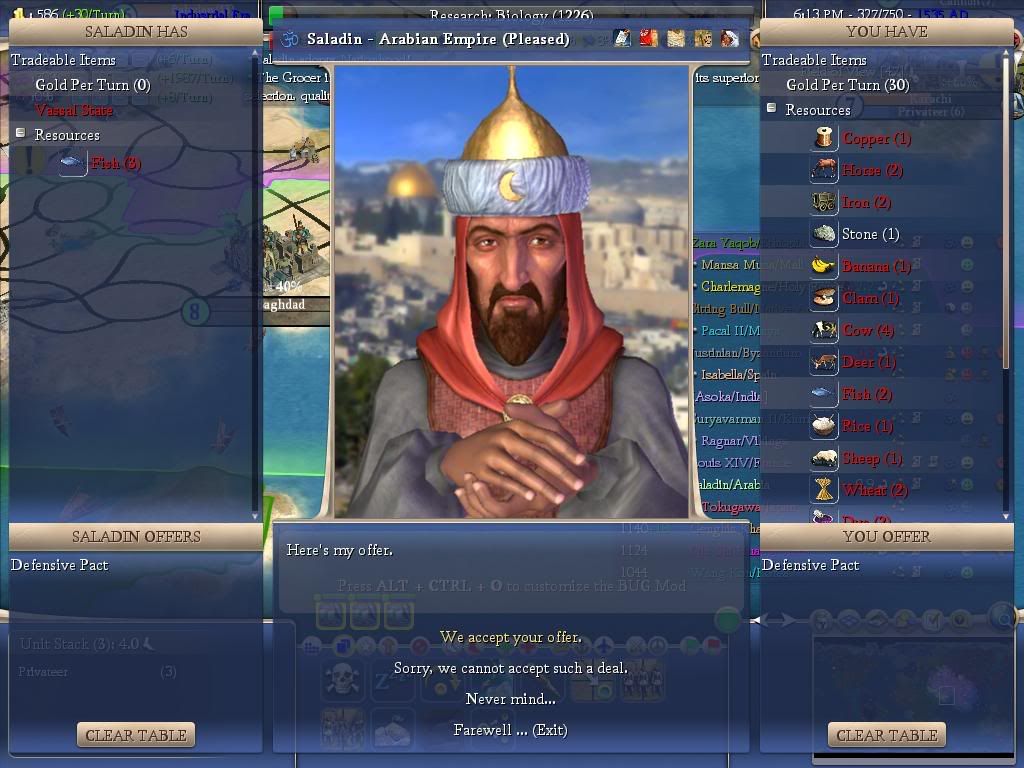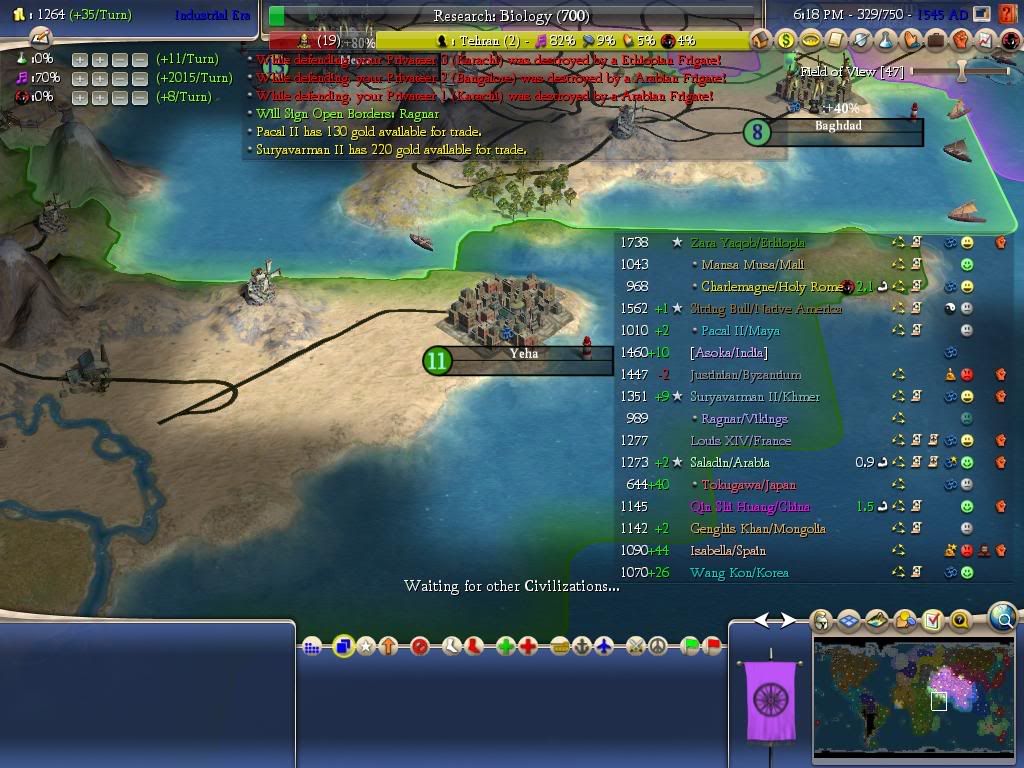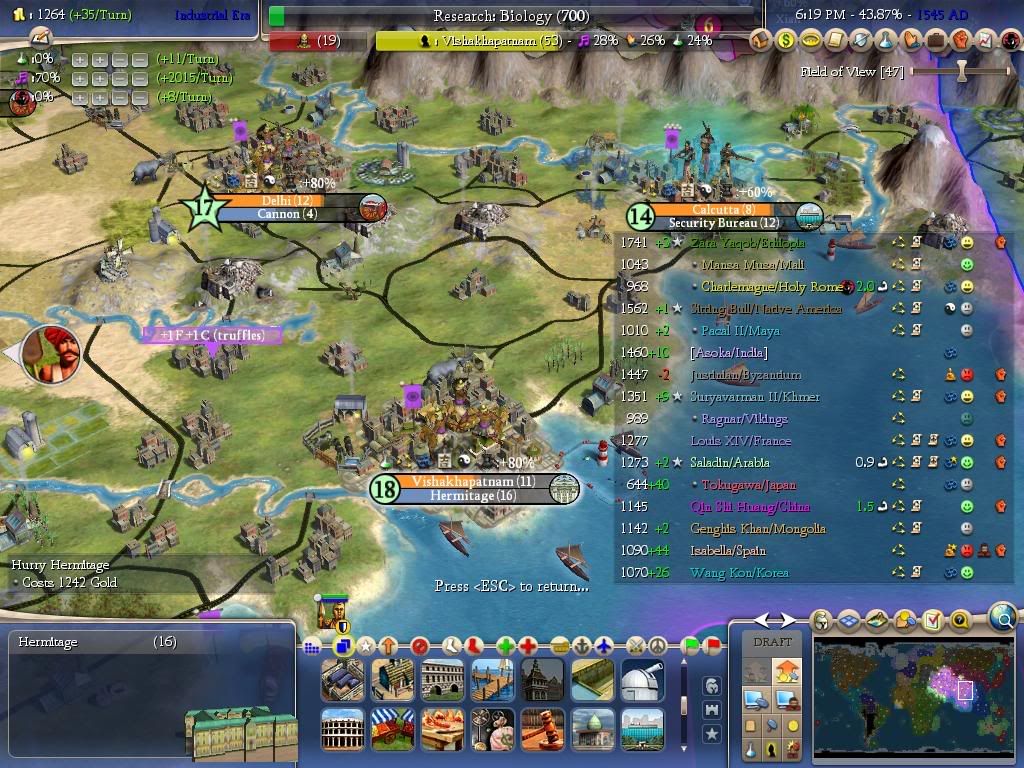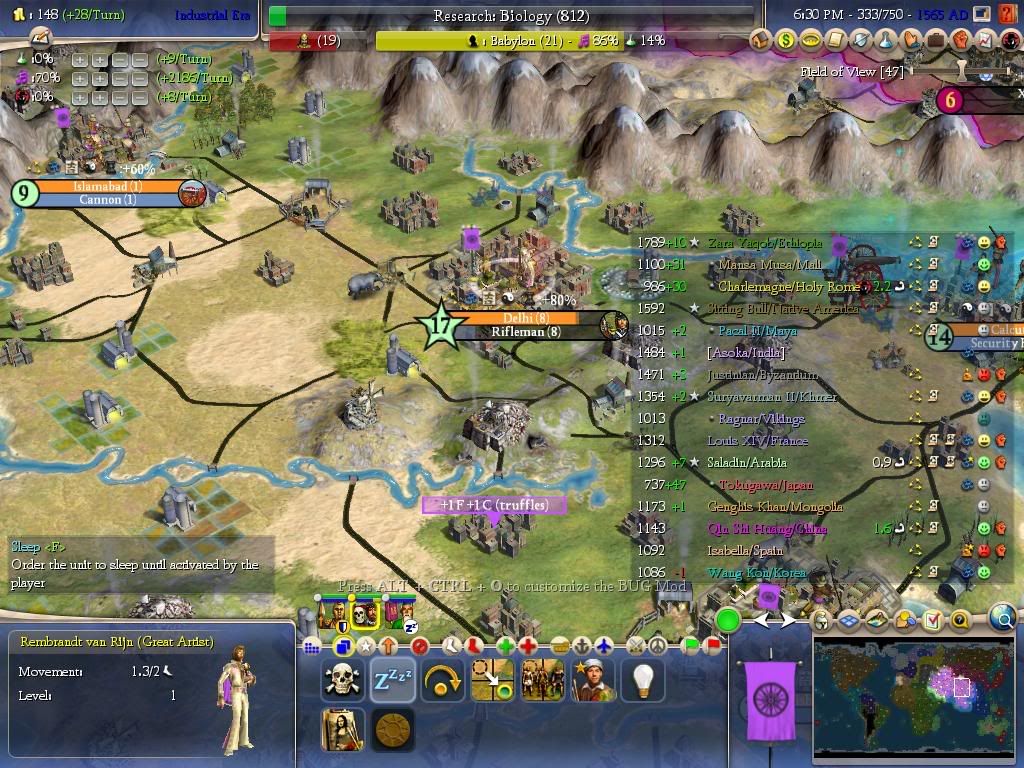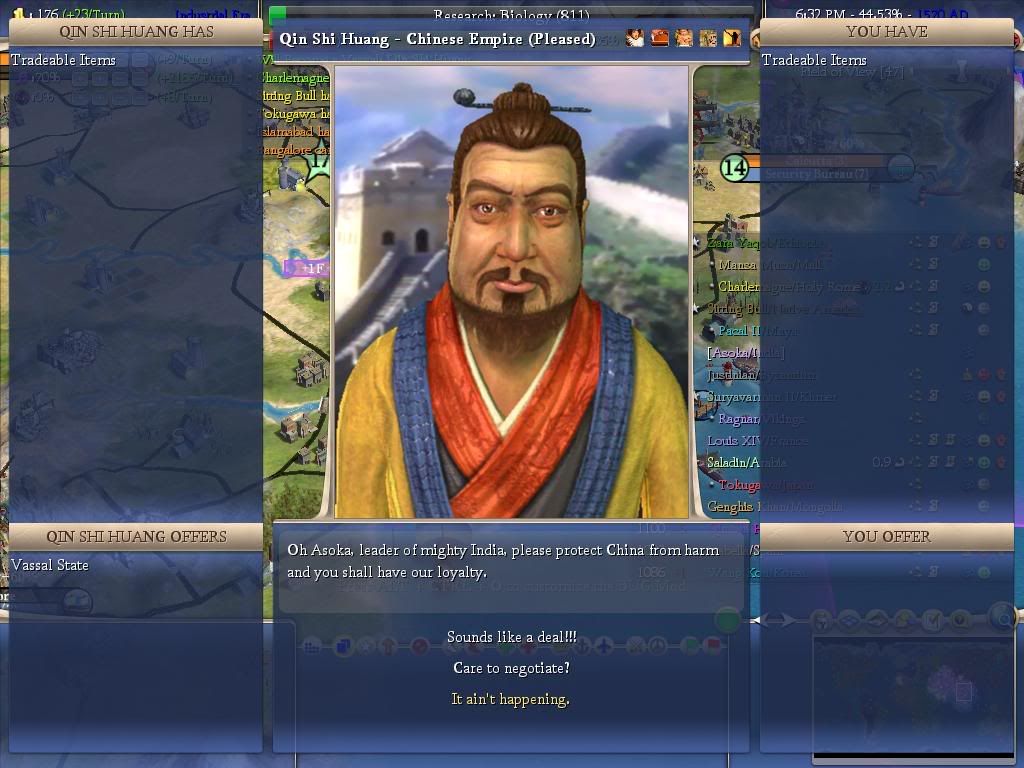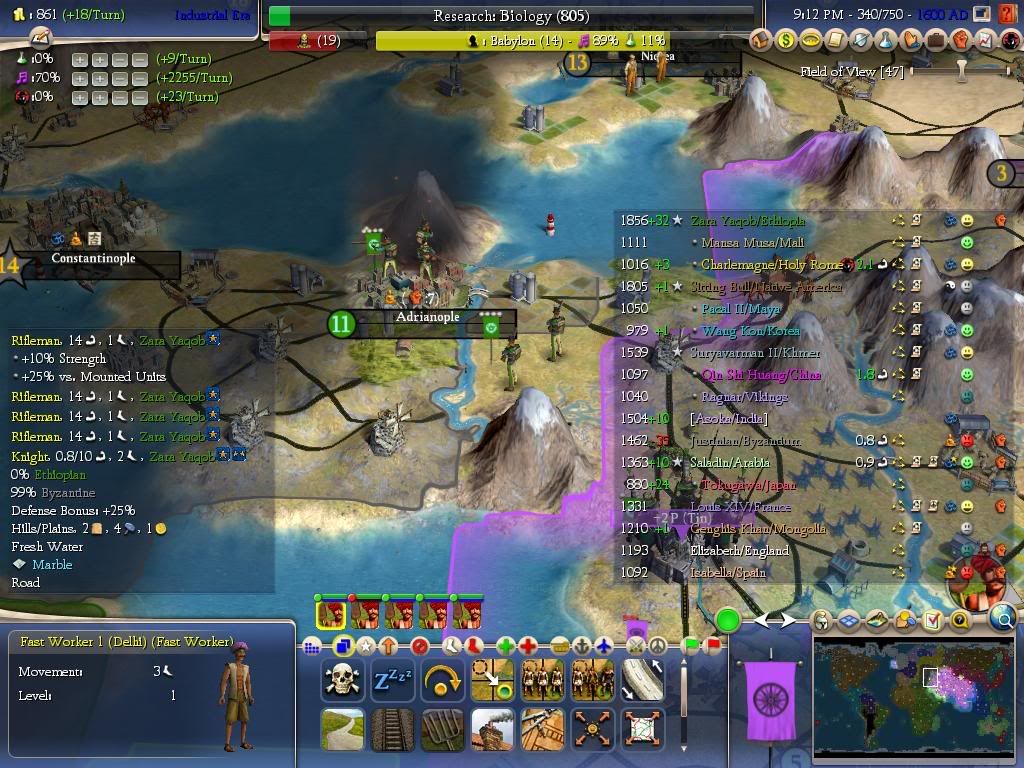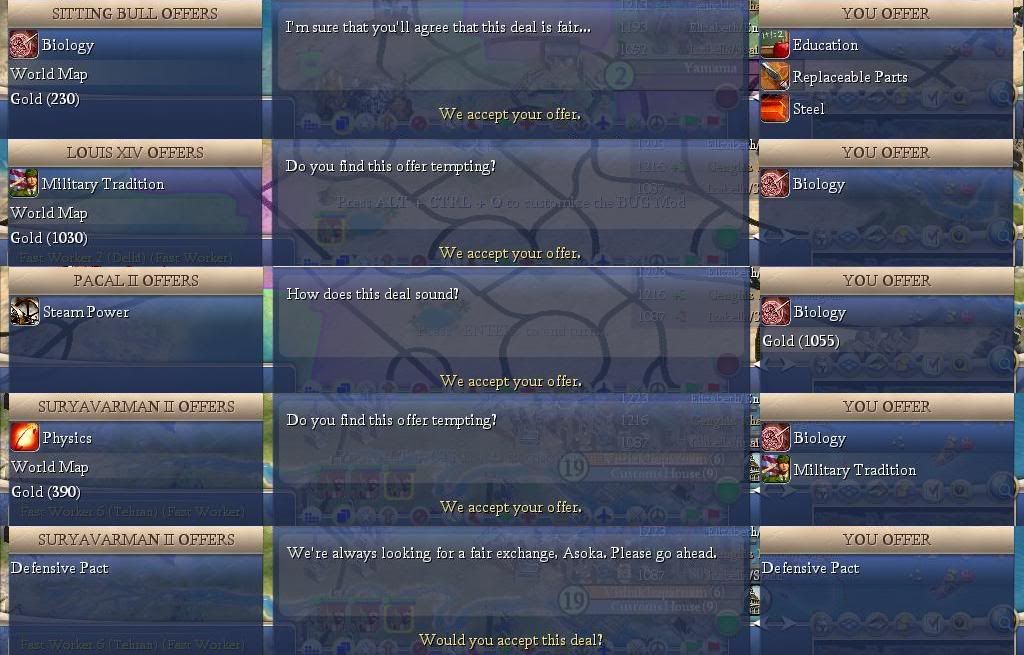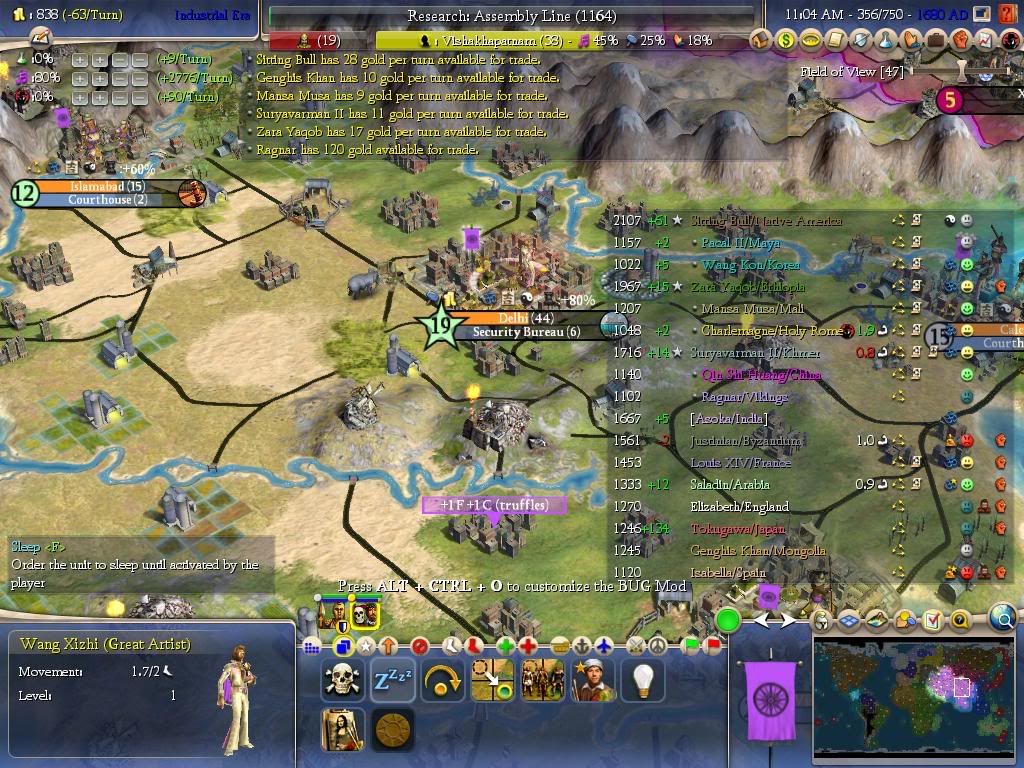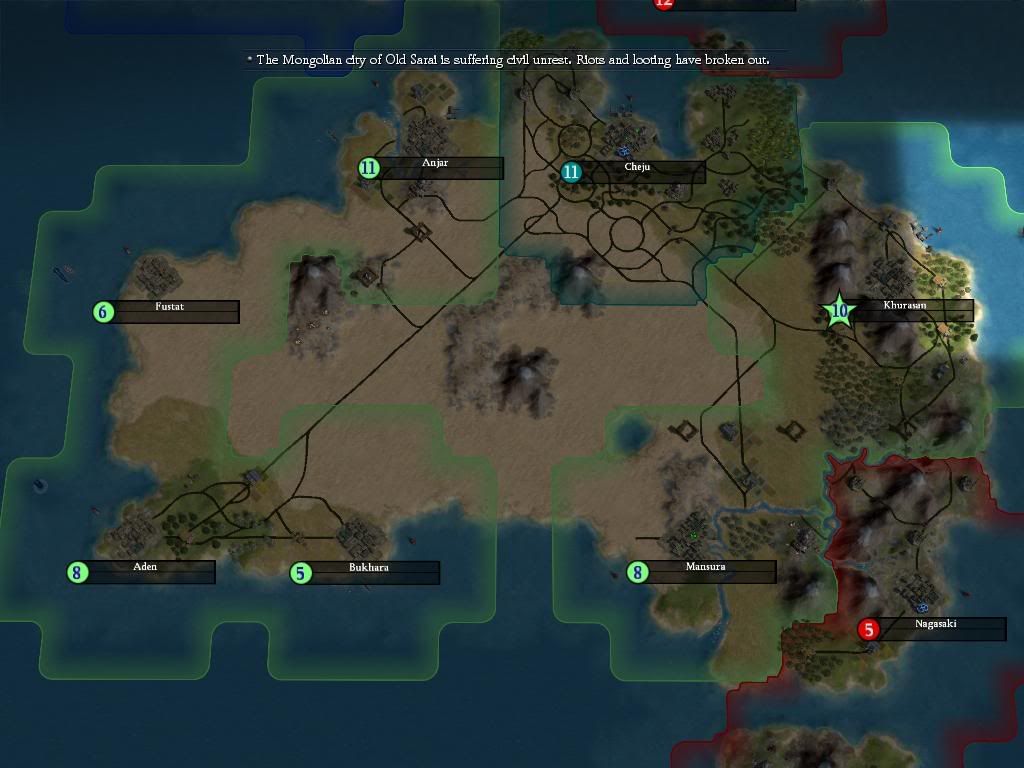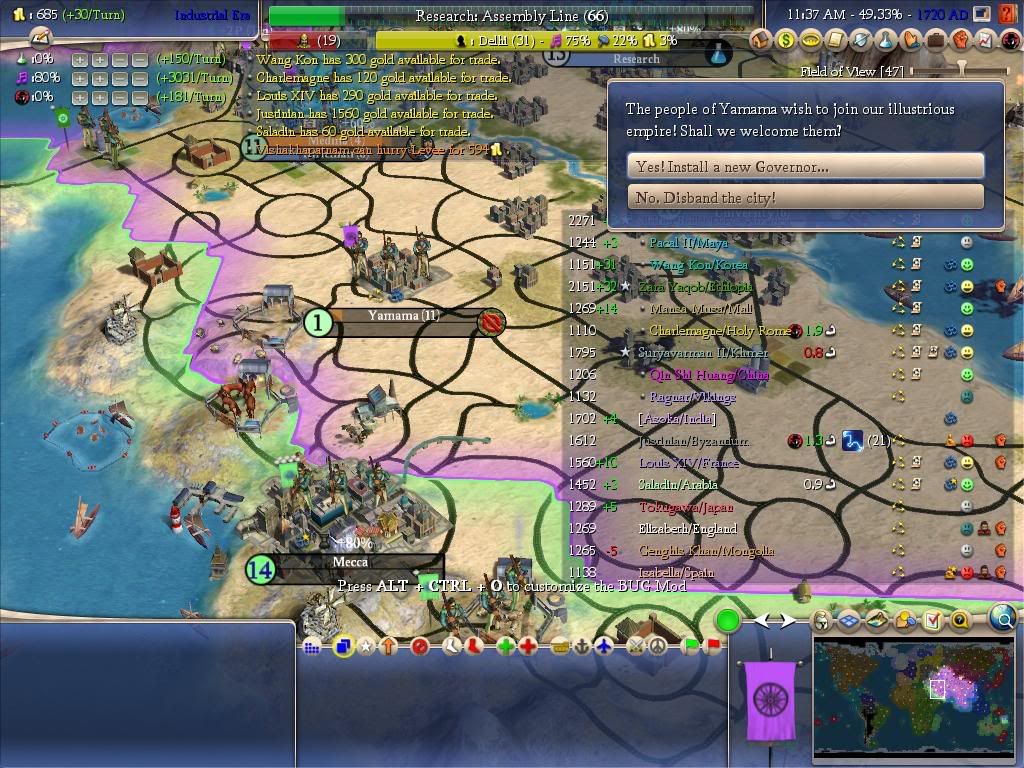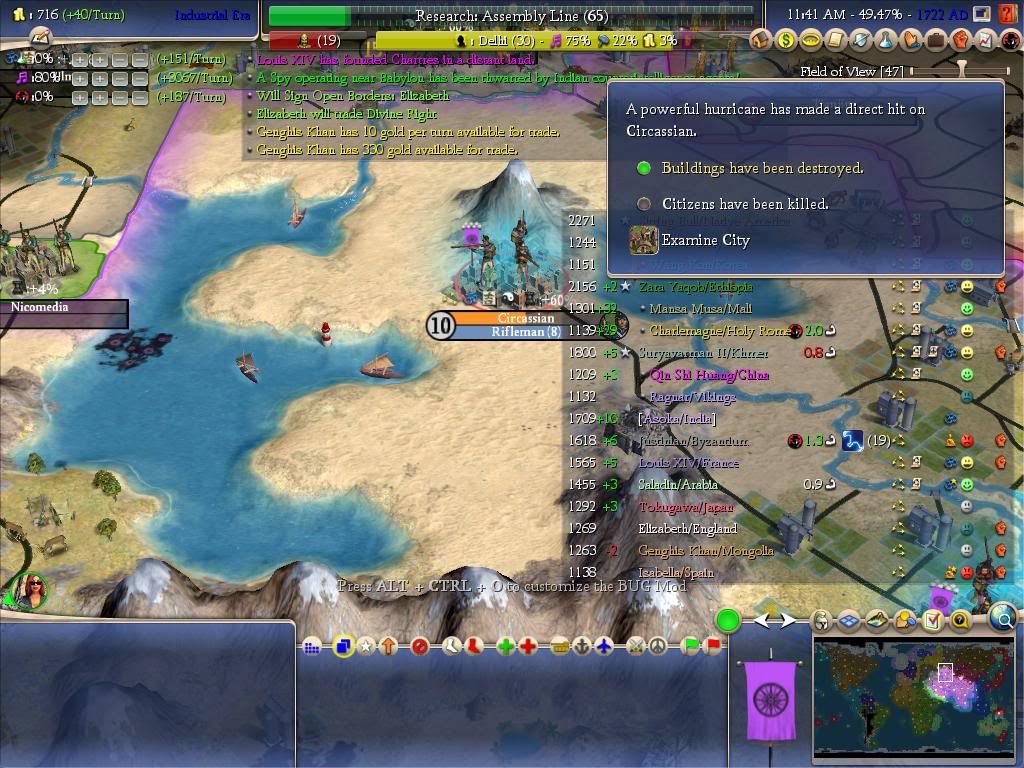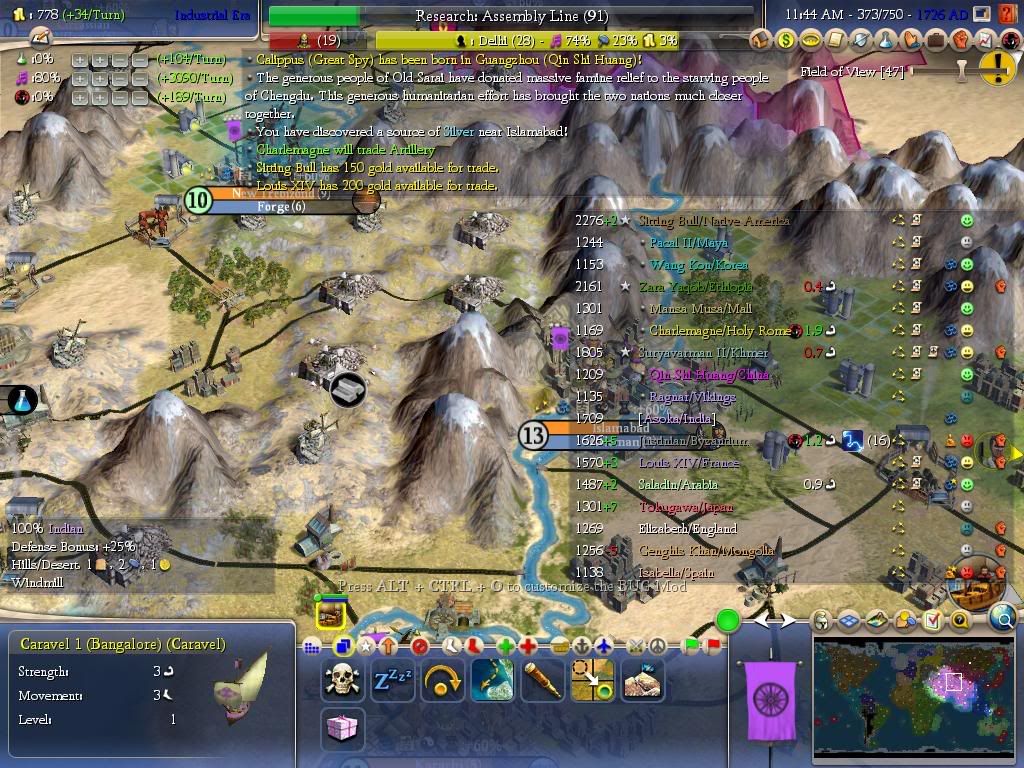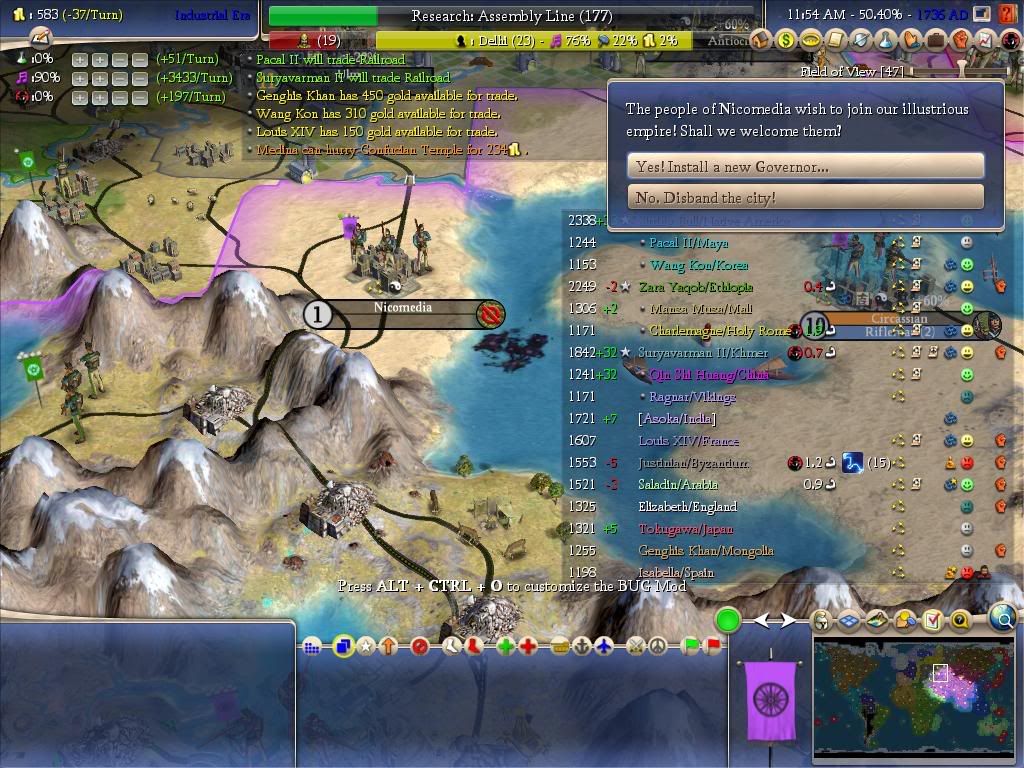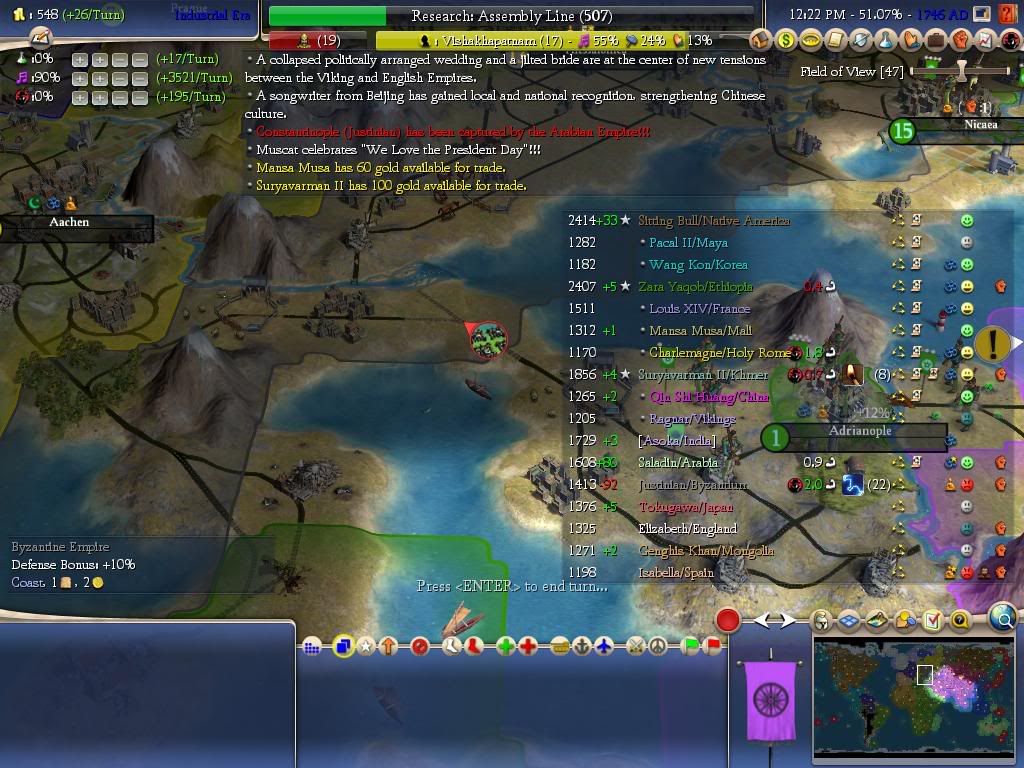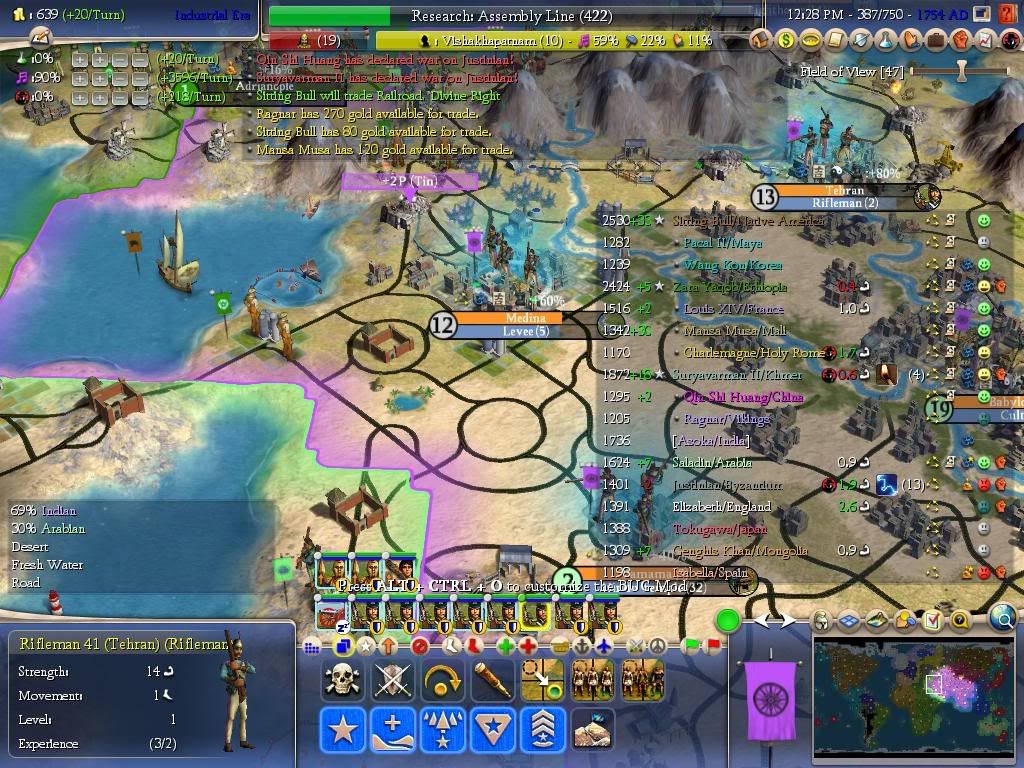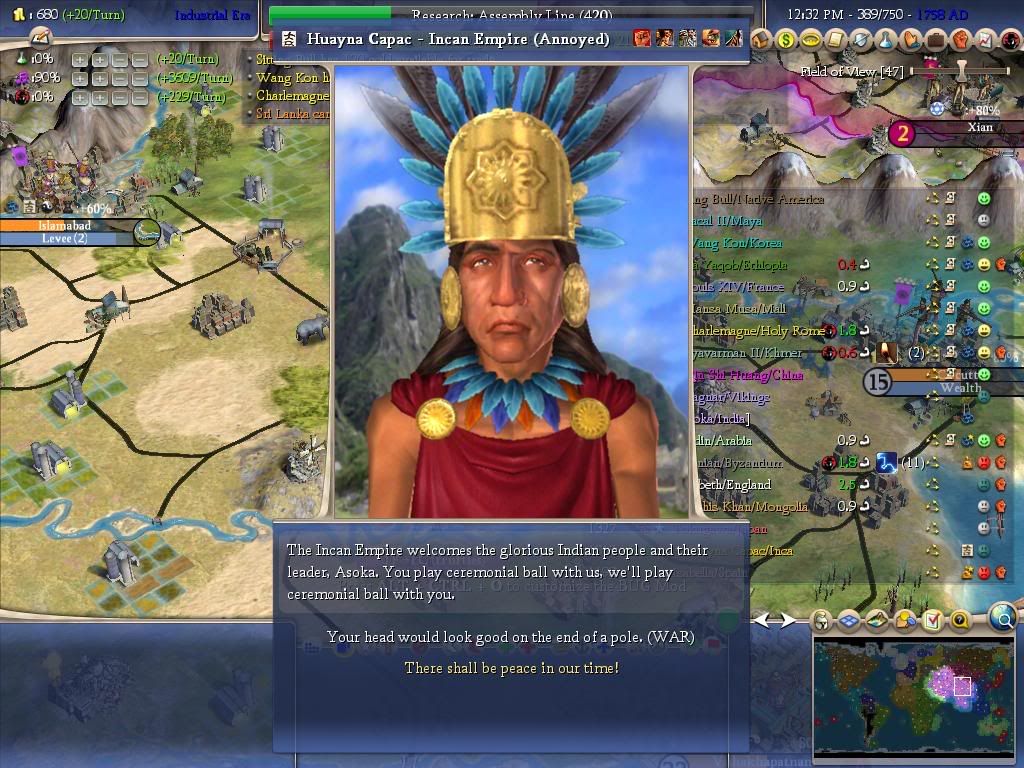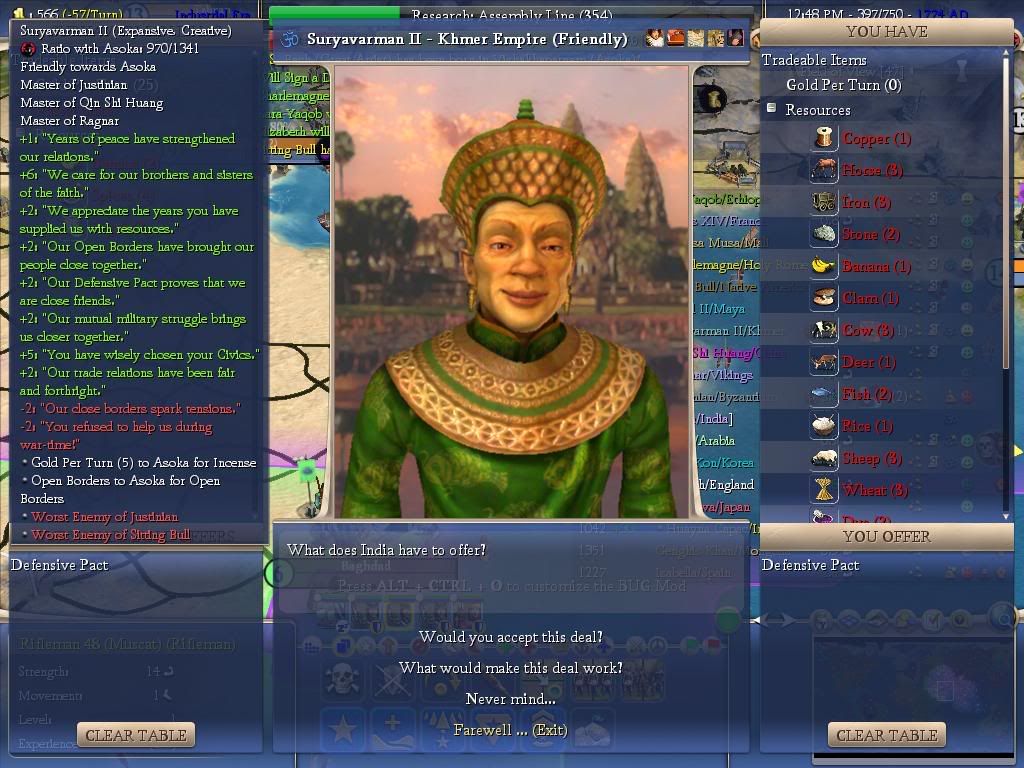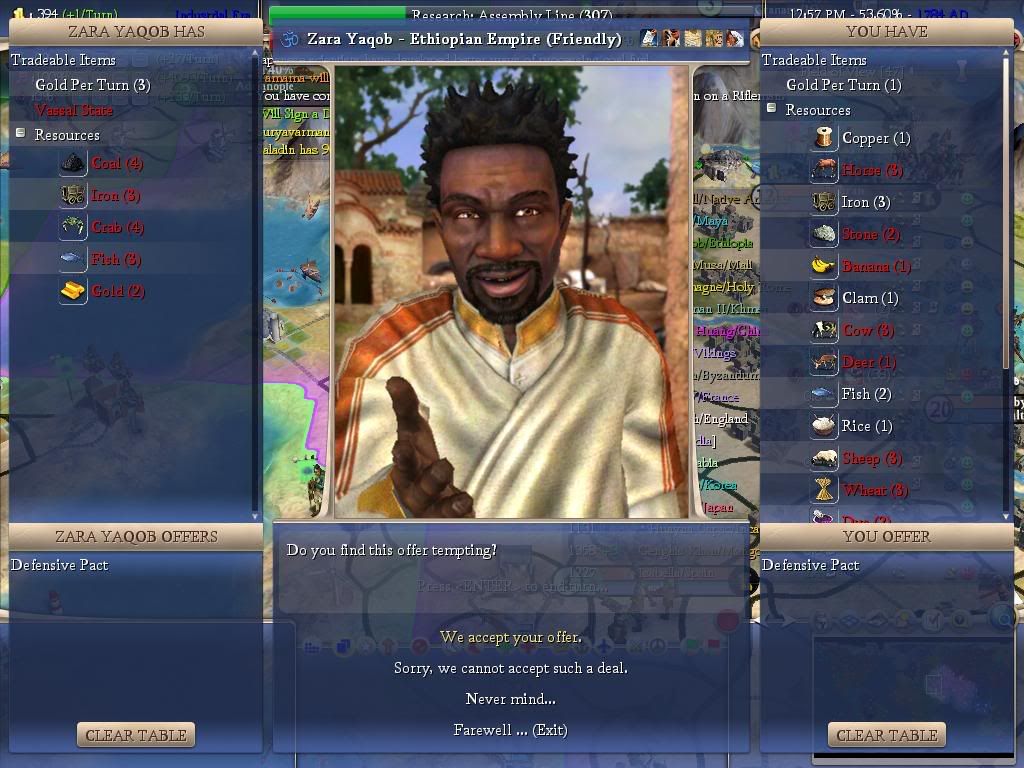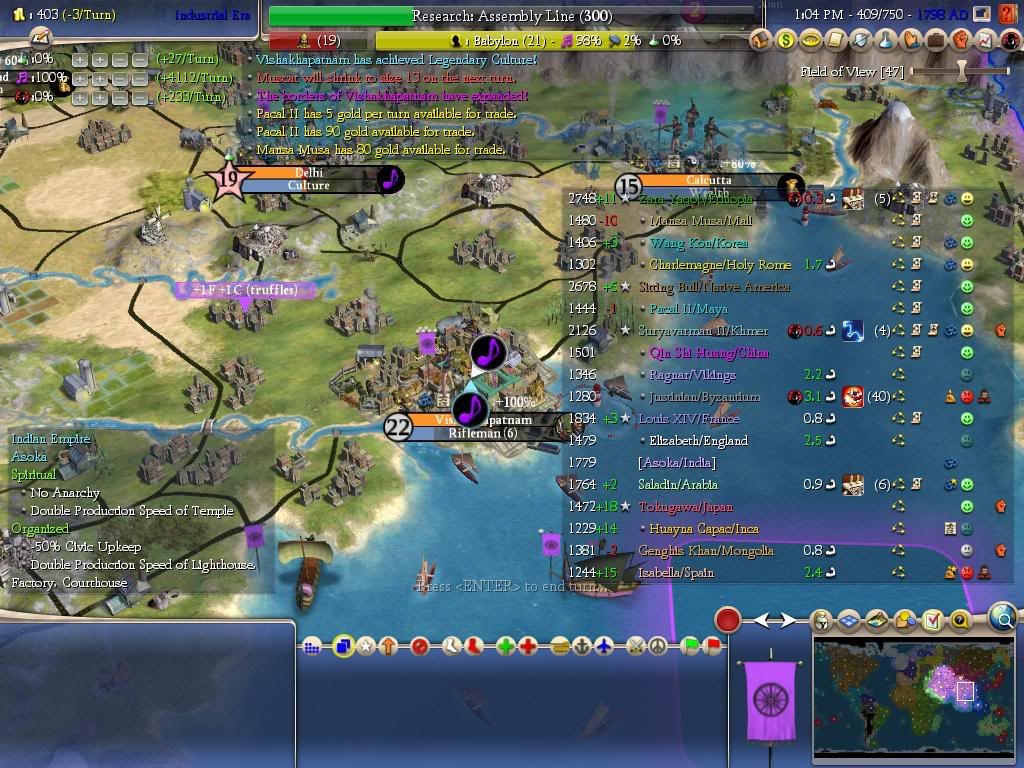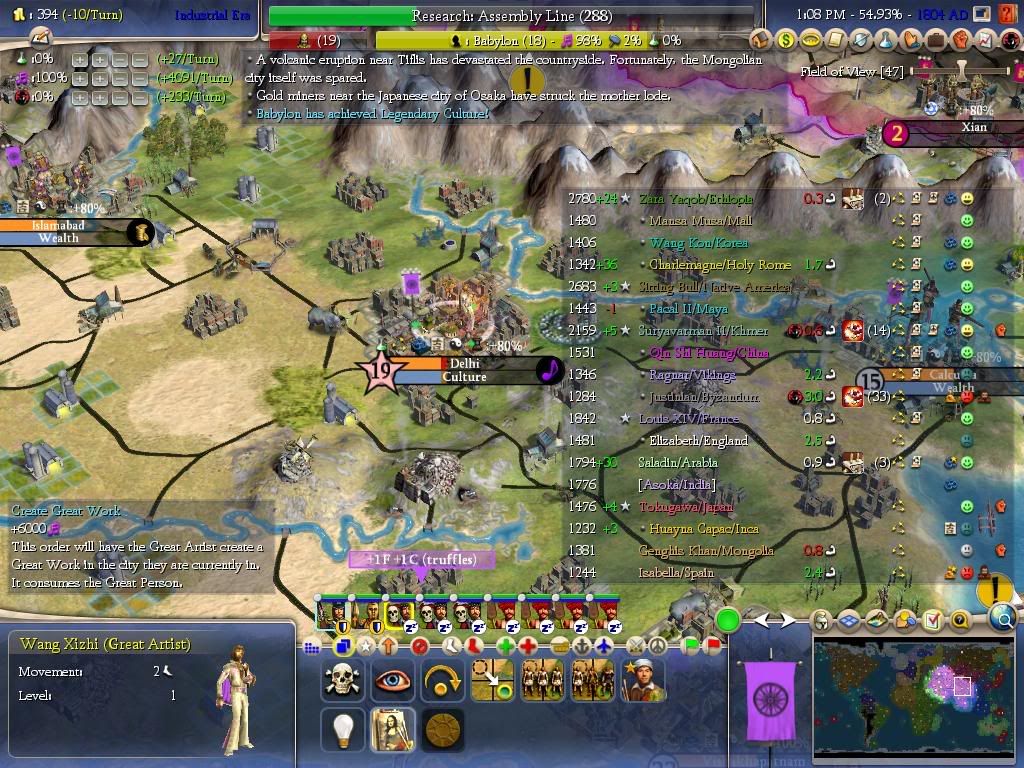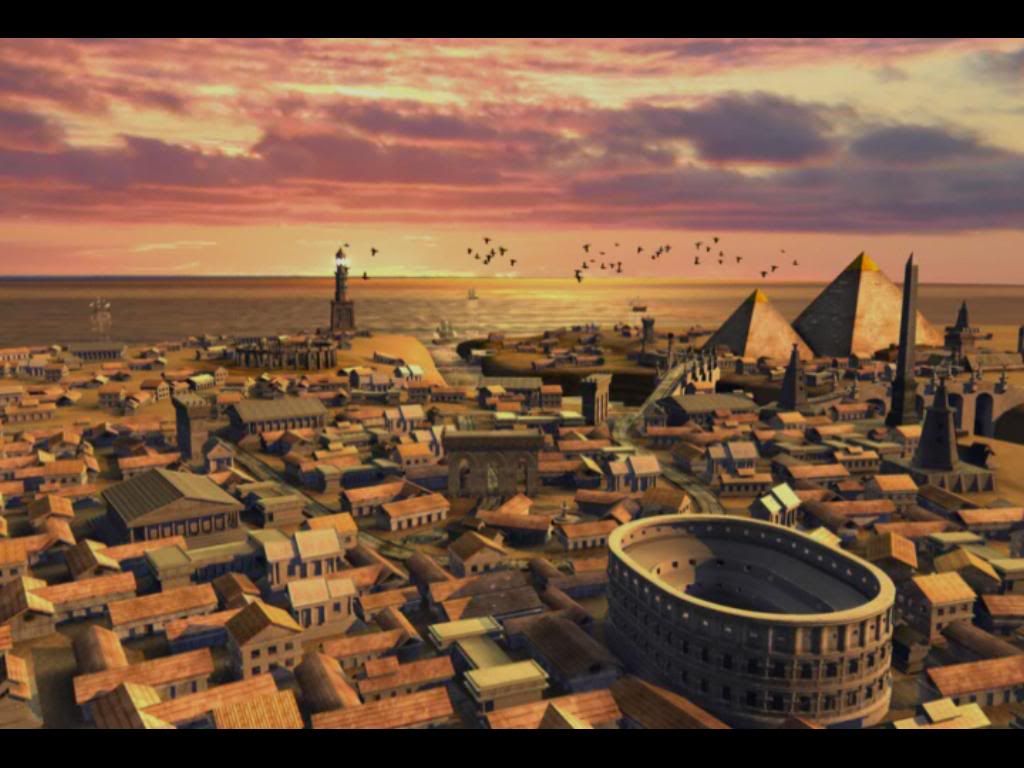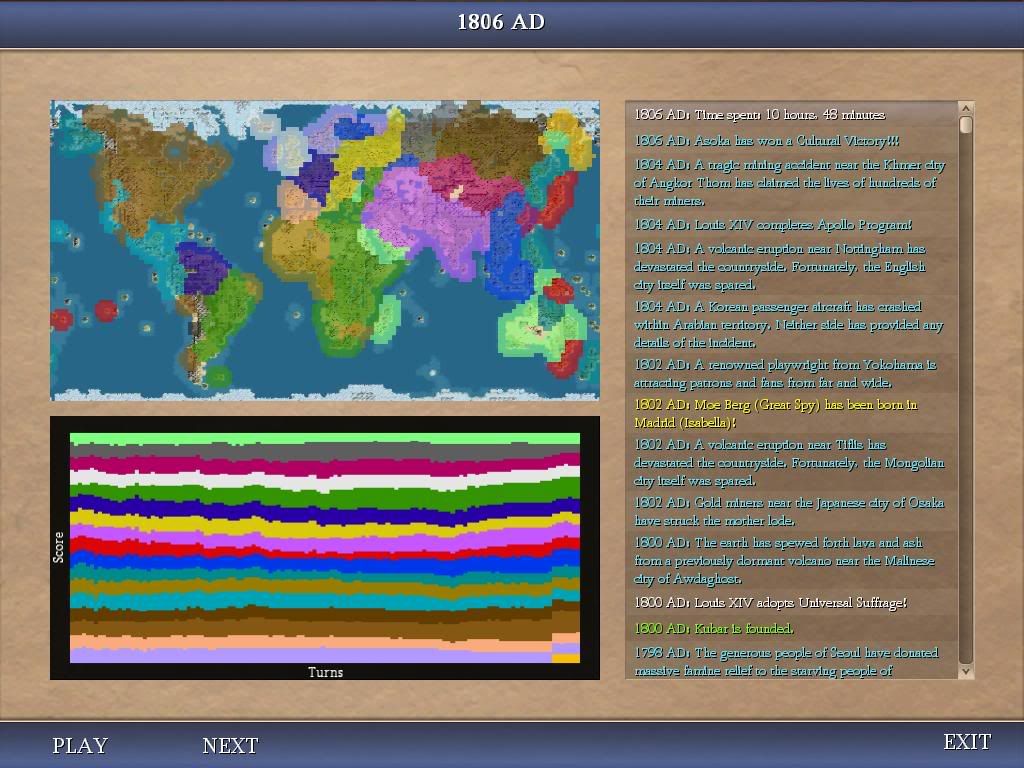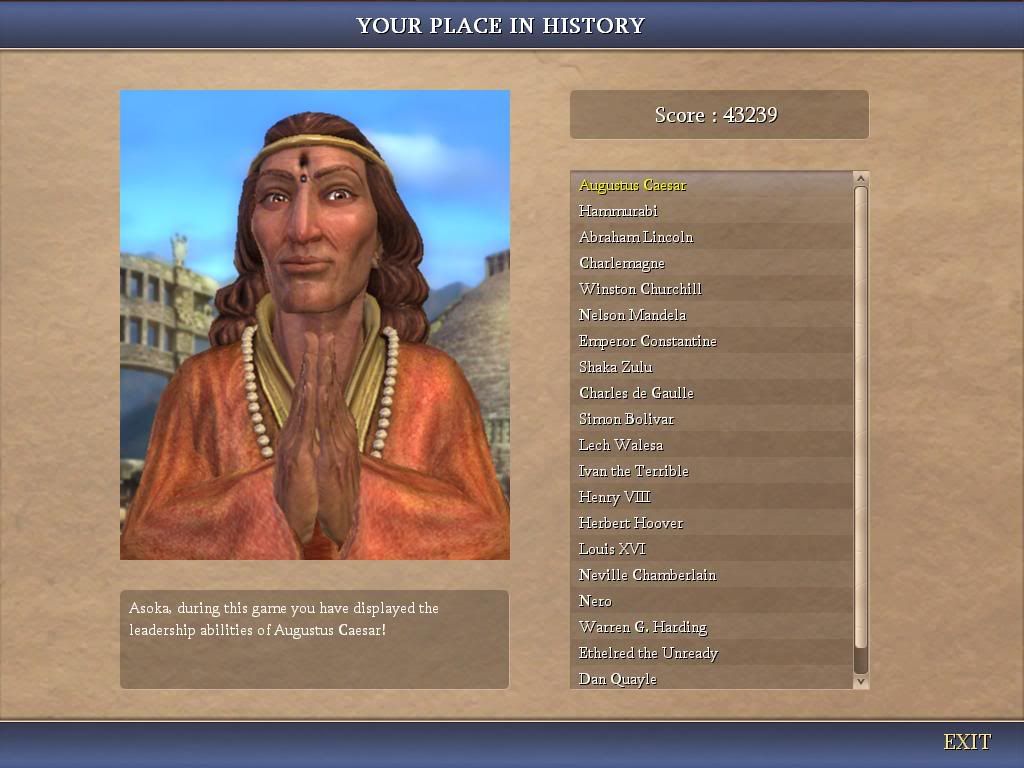A fairly short round in years, but fairly eventful, and I think we're now set up to monotonously hit "End Turn" a hundred or so times for victory.
Our first moves of the round were largely pragmatic:
Astronomy seemed as good a reason as any to prop up Charlemagne's beseiged regime with Guilds. Calling Off Genghis Khan in exchange for Gunpowder freed him up from foreign entanglements, while also endearing him to us and beefing up his power rating, making us our own personal attack dog ready to be sicced on Justinian. And we waved off our squabble with Isabella in order to keep her from using Justinian as an attack dog against us.
Asoka's next decision was yet another gamble. Riflemen would be necessary to protect the Indian people from the predations of her neighbors. But Rifling would require knowledge of Replaceable Parts, which would, in turn, require Banking. And India was not able to put together a deal for Banking that could satisfy any of its neighbors. And so, the plucky Asoka decided that there was no choice but to abandon Liberalism and embark upon an emergency foray into centralizing economic control:
As you can also see, in 1275, the Gods smiled upon the people of India, granting Iron to the Muscat colony. This boon was sufficient that Asoka would even accept the loss of the Liberalism race in order to keep it.
Of course, this wasn't going to keep him from doing everything in his power to win the race:
The strange Khmer emissary thanked Asoka for investing in the First Bank of Yasudharapura, and did bequeath upon him pamphlets offering Free Checking and a Credit Card (prerequisites: Plastics and Economics, allows Civic: Debtor State).
Flush with his discovery of investment, Lord Asoka immediately put it to good use, ordering the layabout intellectuals in the salons of Babylon and Delhi to consider how the new Banks might apply their financial leverage to production. Specifically, military production:
The gamble had paid off. Research was set to Rifling, and the last few Temples were set to be built in the corners of the empire.
Of course, even beyond Replaceable Parts, Liberalism had its own rewards....
Admittedly, the new Free Speech laws allowed the disgraced Advisor Rorschach to publish his rambling journal in the Tehran Frontiersman. The excoriating portrait of Asoka as a weak-willed dilettante surrounded by such dimwits as the mental midget Advisor Gump caused a brief stir among the stolid folk of the military city, but things were quickly back to business as usual. Only now, the unimpeded flow of ideas and art led to a blossoming of Culture across India.
Cash reserves, though, were low, and Replaceable Parts alone would not hold off the Byzantine juggernaut. Mansa Musa may be a disagreeable cur, but he is a wealthy disagreeable cur, and Asoka had something that the Mali wanted. It was time to replenish the reserves:
This would fuel deficit research through the development of Rifling.
In those last few years until reliable firearms could be distributed to the garrisons, though, Justinian would need to be distracted. It was time to, as Advisor Montgomery put it, unleash the hounds:
Advisor Montgomery was usually an unpleasant little man, and this was no exception, but that didn't mean that he wasn't right. Genghis Khan takes his wars seriously, as does Justinian. Multiple cities exchanged hands over the course of the war.
In 1310, Justinian proved that he was fully capable of flaunting wealth and waging war at the same time:
Asoka felt somewhat vindicated in that there was no way the Taj Mahal could have been built in India before 1310.
A few short years later, India, too, achieved a Golden Age, thanks largely to a doddering little man who insisted that, given a proper laboratory and funding, he could unleash the devastating secrets of the atom:
He was dressed in jester's motley and put at the head of a parade around Vishakhapatnam. His iconic mustache was much imitated in years to come across India. The glee incited by the Einstein imitators bettered finances and increased production empirewide.
A song was even written about the unwitting celebrity in Persepolis:
The Persians, though, were doughty warriors, not great artists. Asoka heard it once, chuckled briefly, and decided not to patronize the ditty further. The song, like the mustaches, was a passing fad.
In 1340, serious matters were attended to:
The Holy Roman Empire was rapidly approaching the end of its term as a useful distraction for the world to kick around. Charlemagne's regime was on its last legs, and he had become a pariah in international affairs. With a heavy heart, Asoka closed his Prague embassy.
That same year, a number of other events unfolded:
First, with Rifling, Asoka finally felt that his people were safe. He shuttered the Universities, and converted the Libraries' collections to works of art and fiction. Scientific progress ground to a halt as India turned its attention to questions of beauty. After all, with the deadly power of fire and iron harnessed into weapons of war, what more was there to be learned? Secondly, Sri Lanka finished the Moai Statues, and was finally ready to contribute to the empire. I always have a hard time with the Moai Statues. It seems best for a production-poor city, but it's not cheap, hammer-wise.
No matter. Justinian and Genghis Khan inexplicably signed a Peace Treaty soon after all of this. This was a distressing development, but what was done was done. Asoka offered the Mongols Liberalism, in exchange for the pittance that constituted their gold reserve. The Great Khan, who had come to Delhi himself on his finest horse, leaned over the bargaining table, his breath reeking of raw meat. "For you, my friend, I can do better":
Asoka was taken a bit aback by this offer. Relations with China had normalized somewhat, but Qin Shi Huang was nevertheless a threat. After a long moment of deliberation, Asoka consented. The Keshik honor guard present in the dining hall let out a war whoop, which their leader joined in lustily. The Mongols were, once again, at war on behalf of the peaceful people of India.
Johannes Vermeer, a painter born in the hustle and bustle of Babylon, moved east as a young man to the idyllic City of Destiny, Vishakhapatnam:
There, he spent his years capturing the lives of India's middle class in a series of charming, vivid portraits. His contributions to the city, together with the Indian shift from technology to art, finally pushed Vishakhapatnam past Tehran as our third Cultural city.
In 1405, the well-traveled Machiavelli published his compendium of military might:
Asoka was honored to be mentioned at all, even if only in an appendix. His forces also had the advantage of being concentrated in a few border cities. Unless things drag out to the point where Infantry are running around, I like our chances to defend ourselves from attack.
Of course, Justinian is still bigger than us, stronger than us, and pretty darn mad at us:
So, for now, whatever Byzantium wants, Byzantium gets. 10 turns of peace and a small boost in relations is probably worth that price.
France, meanwhile, continued to be a valuable trade partner:
The gold helped to replenish the Royal Reserve, and the new theories of Economics boosted the economy. Asoka took the changeover to Free Market to also abolish Slavery, in favor of the more humane Caste System, which allowed Artists to begin work across India.
Even China proved to be useful in those days:
Asoka, feeling guilty for Charlemagne's sorry state of affairs, did what he could to ameliorate his suffering. The gold, of course, also helped.
Of course, that gold was almost immediately shipped across the Atlantic in Mayan Caravels:
Being contacted by the New World is normally kind of embarassing, but I could have sent a ship over there. I just had more important things to do. Yeah, that's the ticket. That said, with Nationalism, now I even have the option of Drafting Riflemen for the inevitable showdown with Justinian.
So here's where I decided to call a stop. We are on the clock for winning the game. How far off is that?
Worse comes to absolute worst, 195 turns. I don't think it'll be near that much, as Cottages mature and Great Artists get born. My estimate would be closer to 100 turns or so. Now we just have to survive that long.
Here's a look at the Tech screen:
Should we make a few final trades before we fade into technological obscurity? SHould I turn research back on for a few more techs?
Finally, the Diplomacy screen:
Notably, Saladin has broken free of the Ethiopian bloc, and is only Pleased with me, so that may bear watching. I've caused revolts in a few of his cities, so he's feeling the heat.
So, what do you all think?
The save:

